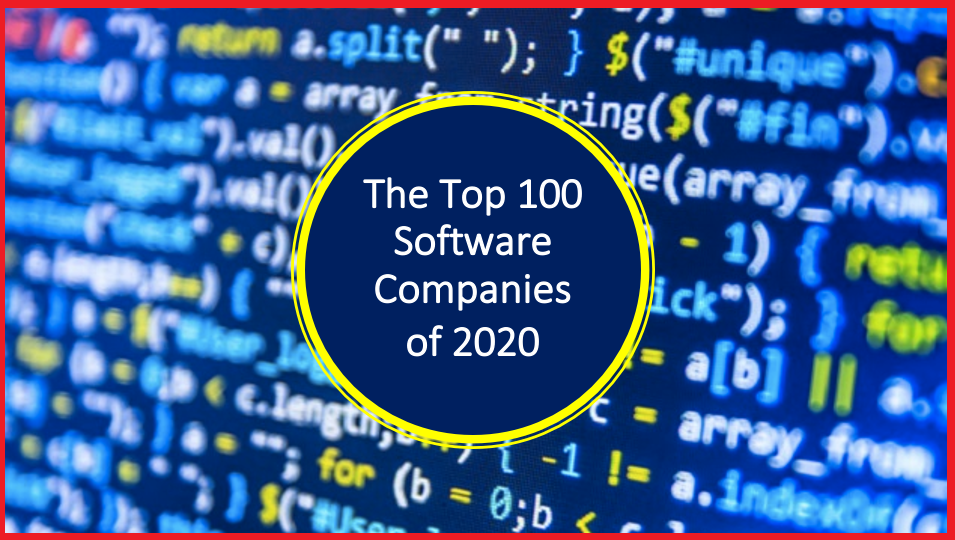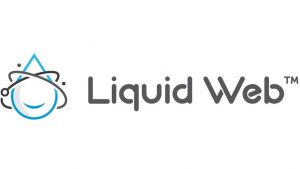The Software Report is pleased to announce The Top 100 Software Companies of 2020. These companies provide some of the most important and impactful software solutions for businesses across the globe. They span a wide array of functionality from data analytics and business intelligence to workflow tools, sales enablement, and security, among other solutions.
This year’s awardees were selected based on nominations from industry professionals as well as company customers. Each nominated company was further evaluated across multiple categories including product strength, management team caliber, organizational composition and company growth.
Congratulations to each of the companies named to The Top 100 Software Companies of 2020 awards list.
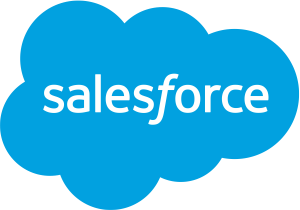
1. Salesforce
Category: Customer Relationship Management
Location: San Francisco, CA
Since the turn of the century, Salesforce has become one of the most trusted customer relationship management (CRM) platforms across the globe. In 1999, co-founder/CEO Marc Benioff, along with Parker Harris, Dave Moellenhoff, and Frank Dominguez, created the company in an effort to eliminate the burden of physical software and inadvertently innovated Software-as-a-Service (SaaS) in the process. Salesforce was the first company to focus on SaaS from its inception and continues to pioneer the industry.
Salesforce is driven by its Customer 360 platform, designed to unite customer data across multiple applications and between departments and provide a clear, robust image of every customer. Features such as the Lightning App Builder and Trailhead Training Platform offer businesses more control over learning and operating their entire cloud-based infrastructure, while other apps provide automation for sales and marketing processes. Salesforce is truly an effective all-in-one CRM tool for businesses large and small.
As the number one CRM platform worldwide, Salesforce enhances operations for over 150,000, including Farmers Insurance, ADP, and Amazon Web Services. With an ARR of $17.1 billion and counting, the company’s legacy of innovation and excellence appears intact.
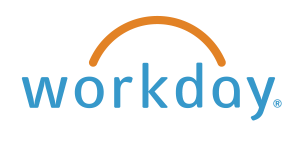
2. Workday
Category: Human Capital Management
Location: Pleasanton, CA
When human resource management system (HRMS) PeopleSoft was acquired by Oracle in 2004, David Duffield and Aneel Bhusri decided it was time for them to break the chains of physical servers and put their energies into a cloud-based future. The fruit of their collaboration is Workday, a powerhouse in subscription-based enterprise software. As of 2020, their platform has been adopted by industry giants such as HubSpot, Netflix, and Quicken Loans, and high customer satisfaction is driving their expansion even further.
Headquartered in the San Francisco suburb of Pleasanton, California, Workday’s platform unifies Human Capital and Financial Management systems into a modern interface, granting businesses greater control over their most valuable assets. Human resources and payroll are integrally intertwined, and Workday ensures that those systems work together to any company’s benefit. As enterprise resource planning (ERP) continues to be a driving factor in growth, the platform promotes efficiency and increases agility, allowing companies to constantly stay ahead of the pack.
Since its founding, Workday has become one of the largest publicly-traded SaaS companies in the world and is currently growing toward an ARR of $1 billion per quarter. Co-founder and CEO Bhusri brings two decades of experience at the forefront of enterprise software and is committed to easing the pains of moving infrastructures from legacy systems into the ever-expanding cloud. With Bhusri and Duffield still leading the way forward, Workday is soon to become the dominant player in HR software.
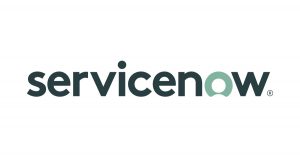
3. ServiceNow
Category: IT Service Management
Location: Santa Clara, CA
Founded in 2003, ServiceNow has become one of the fastest-growing companies in the market of enterprise software operations. In the ever-changing modern business ecosystem, businesses must stay ahead of the competition by evolving at the same breakneck pace, and ServiceNow’s platform provides the essential tools for easy automation and digitization of old manual systems.
Improving business outcomes is the ultimate goal of ServiceNow’s industry-leading Platform-as-a-Service (PaaS). The Now Platform is a cloud-based, easily-integrated suite that strengthens a company’s existing infrastructure while improving speed and efficiency in everyday operations. The result is an end-to-end digital workplace that keeps business flowing and growing.
CEO Bill McDermott joined the company late in 2019 when John Donahue made the leap to the top of Nike, and he doesn’t intend on letting ServiceNow slow down. In the wake of the Covid-19 pandemic, the company is tackling workplace health and well-being with the Safe Workplace suite of applications designed to alleviate concerns of both workers and their employers as offices reopen across the globe. McDermott sees his charge surging toward $10 billion in annual revenue, steadily surpassing software competitors and chasing the number one spot currently held by Salesforce.
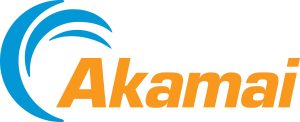
4. Akamai
Category: Cloud Computing
Location: Cambridge, MA
Long familiar to most in the tech ecosystem, Akamai is a Boston-area company that has taken cloud services and security to the next level. Since it’s birth at MIT, it has become one of the biggest players in content delivery network (CDN) systems, ensuring web users the safest, fastest, and most reliable experiences the internet can offer. The Akamai Intelligent Platform bridges the gap between users and servers using both physical networks and cloud computing. Simply put, if you’ve used the internet in the past two decades, Akamai has been your undercover chaperone.
CEO and Co-Founder Dr. Tom Leighton created Akamai with mathematician Danny Lewin as internet technology was set to explode globally. Although Lewin tragically passed away during the September 11th attacks, Dr. Leighton has been a steady captain for the company since its foundation in 1998. He has grown the company into the global leader in web content and media delivery solutions, leading a workforce of over 7500 employees. In 2019, the company reported annual revenue of $2.7 billion, an 8% increase overall.
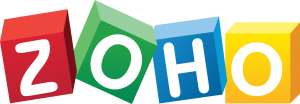
5. Zoho
Category: Customer Relationship Management
Location: Chennai, India
As the global workforce steadily heads toward fully remote-based operations, many companies are being forced to radically adapt with the times. While Google steals the spotlight, California/India-based Zoho is moving beyond its signature office suite. The company once known as AdventNet is competing in the customer relationship management (CRM) space against some pretty stiff competition.
The company’s existing software is a distinct advantage, Zoho’s CRM platform is an all-encompassing hub for enterprise workflow. The platform brings together sales, marketing, inventory management, and human resources into one convenient, cloud-based CRM solution. It also easily integrates with its competitor, G-Suite, providing improved accessibility as well as increased business intelligence.
Zoho’s influence in the enterprise software market is worldwide; with global headquarters in Chennai, India, it has been a crucial development tool for large-scale businesses like Amazon Web Services as they integrate into international markets. Over 50 million customers use Zoho’s platform. Notably, the company has offered free subscriptions during the COVID-19 crisis. CEO Sridhar Vembu owns 88% of the company he co-founded, which has an estimated revenue of over $5 billion.
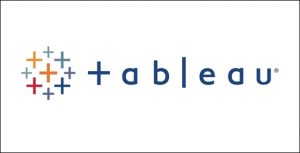
6. Tableau
Category: Data Analytics and Visualization
Location: Mountain View, CA
When data analytics and visualization software company Tableau was acquired by Salesforce in 2019, many people questioned Marc Benioff’s “software-free” philosophy. Business Intelligence is one of the most crucial components in any company’s success, and Tableau just happens to offer one of the most popular platforms around. As Bennioff says of the merger, “It’s truly the best of both worlds for our customers.”
Tableau enables users to customize dashboards that visualize data effectively, turning it into actionable insights. Like Microsoft Excel and other spreadsheet software, the platform generates worksheets featuring customizable graphs and charts, providing a clear visual picture of a company’s complex, yet covetous data. With the power of Salesforce now driving the platform’s further development, the potential for growth is boundless.
Before the acquisition, Tableau was already generating over $1 billion in annual revenue, and as the need for simple data analysis grows, Salesforce will find itself ahead of the curve.
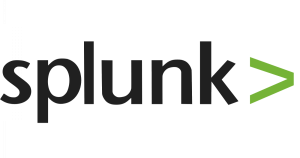
7. Splunk
Category: Data Analysis
Location: San Francisco, CA
Founded in 2003, San Francisco-based Splunk has become a force of reckoning in data analysis. With Splunk’s core “Data-to-Everything” platform, companies can finally parse their large, machine-generated data and turn it into actionable insight. Real-time visibility, enhanced search/navigation, and advanced analytic reporting are just a few of the highlights of this dynamic tool that makes information clear and useful.
Soon, Splunk users will be able to apply the platform to their Google Cloud infrastructures thanks to a strategic union between the two data giants. The ability to ask questions and receive accurate answers, using current and historical data, is an essential utility in the modern business environment. If data is a prime asset, Splunk allows businesses to see it clearly, and with G-Suite already boasting over 4 million paid subscribers one can expect strong positive results from this partnership.
Led by CEO Doug Merritt, Splunk has generated an enterprise value of over $30 billion with annual revenue surpassing $2 billion, up nearly 50% from the previous year.
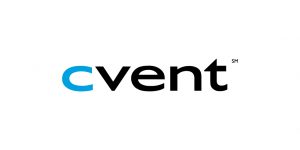
8. Cvent
Category: Event Management
Location: Tysons, VA
As the global economy shifts into a more remote arena, Cvent is primed to leap into the forefront of virtual event management. Live concerts, conferences, and corporate meetings have all been moved from the boardroom to the living room, and companies are scrambling for guidance and solutions. Cvent’s virtual meeting management software integrates with all major video conference platforms and brings along all their other event planning resources. Businesses can create professional, custom virtual environments, create event marketing strategies, and employ attendance and other data straight into their existing CRM. With Cvent, a company can transform its virtual presence and maximize rewards for all involved.
CEO and Founder Reggie Aggarwal oversees the company he founded from headquarters in the Washington, D.C. area, but Cvent’s event management solutions are implemented worldwide. With over 4,000 employees and a customer base already over 30,000, Aggarwal’s company is prepared to scale operations as greatly as needed. And with a customer-first attitude, Cvent looks prepared to lead the virtual boardrooms and conference centers of the future.
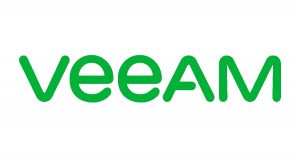
9. Veeam
Category: Data Management and Backup
Location: Baar, Switzerland
Headquartered in Baar, Switzerland, Veeam is a global leader in IT backup solutions, specializing in physical, cloud-based, and multi-cloud storage technologies. Veeam has grown from a backup and replication utility to a full suite of data protection solutions. Additionally, it offers fully-automatable restoration in case of emergency outage with its Availability Orchestrator. When disaster strikes, complex processes are automated and set into action while the business creates a plan to move forward. Veeam’s intelligent data management tools are simple, flexible, and most importantly reliable.
In 2020, Veeam was acquired by long-term investment partner Insight Partners at a valuation of $5 billion and is now poised to expand services from Europe into North American markets. The company, founded in 2006 by Ratmir Timashev and Andrei Baronov, is helmed by CEO William Largent, whose experience includes previous executive roles in and out of the company. Before serving as EVP at Veeam, Largent oversaw Applied Innovation, Inc. Veeam’s software products are currently used by over 375,000 customers worldwide, including alliance partners like Amazon Web Services and Cisco Systems.
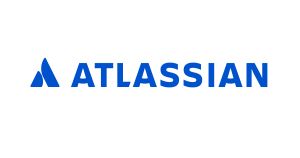
10. Atlassian
Category: Project Management
Location: Sydney, Australia
Australian enterprise software juggernaut Atlassian was founded in 2002 by Mike Cannon-Brookes and Scott Farquhar with nothing more than personal credit cards and a desire to be their own bosses. In the process, the two went from college students to billionaires in less than twenty years thanks to their core platform, Jira. The signature software offers total project management and bug tracking, with additional features integrated for IT and incident management. The Confluence team management platform allows for company-wide collaboration and dissemination of knowledge in wiki-form, providing an easily-searchable information repository that’s already integrated with Jira’s systems. With an extensive range of cloud-related products, the company’s “cloud-first” strategy seems to be paying off.
Atlassian is already used by over 160,000 organizations, including companies as diverse as Carfax and Domino’s Pizza. In 2019, the company finally cemented its status in the upper echelons of the software industry with an annual revenue surpassing the billion-dollar mark. Over 3,000 people work for the growing enterprise software company across the world. Atlassian has offices in New York City, Amsterdam, and Manila.
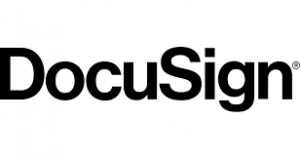
11. DocuSign
Category: Electronic Agreement Management
Location: San Francisco, CA
In a global marketplace that is increasingly remote, there are plenty of agreements in need of virtual signatures. DocuSign, a San Francisco-based company, is the industry leader in electronic signature and agreement software. The company’s Agreement Cloud platform offers a suite of programs designed for the preparation, signing, and management of an organization’s contracts and concords. The firm also recently acquired Seal Software, which specializes in AI-based contract data extraction and analysis, further enhancing the overall scope of DocuSign’s capabilities.
While the company was founded in 2003, the idea sprang from Co-founder Tom Gonser’s experience in the late 1990s on the verge of the web revolution. From the ashes of another startup, the similarly-named DocuTouch, DocuSign has grown to become the most-used eSignature software in the world. DocuSign Click and ID Verification products integrate into companies’ existing databases, making secure, valid agreements easier and safer.
In 2020, DocuSign carries a market cap well over $30 billion, and their annual revenue is rapidly approaching $1 billion. With physical contracts quickly becoming a thing of the past, the company expects continued steady growth. Partners include tech titans such as Microsoft, Apple, and Google, with the company boasting over 500,000 global customers.
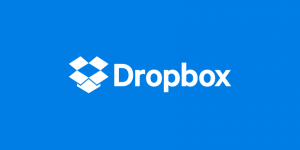
12. Dropbox
Category: Cloud Storage and Management
Location: San Francisco, CA
With over 500 million users globally, Dropbox is best known as the pioneer and standard-bearer of file storage and sharing platforms. The freemium business model catapulted the company to the forefront of cloud-services in 2008 with the launch of its iconic file depository and collaboration platform, offering users 2 GB in free storage immediately with signup. For the professionals, Dropbox offered two tiers of paid subscriptions with expanded storage space and enhanced features. The company surpassed one million registered users after the first year.
In the years since its founding, Dropbox has seen the cloud storage industry grow rapidly with the likes of Amazon and Google joining the fray. CEO and co-founder Drew Houston started the company with Arash Ferdowski and together they have seen it grow into the industry-leader in workplace efficiency and collaboration with a valuation of over $10 billion and an annual revenue quickly speeding past the billion-dollar mark.
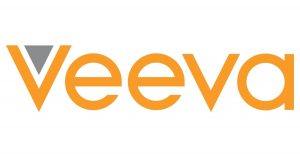
13. Veeva Systems
Category: Life Sciences Data Management
Location: Pleasanton, CA
Veeva Systems recognized the need for specialization early on. Today, they offer the number one SaaS cloud-computing system specifically built for the global life-sciences industry. With ever-evolving regulations, advancements in sciences, and market changes in biotech, Veeva is dedicated to staying atop the league table for data management in the rapidly growing market.
The business activities within the life sciences sector is much bigger than most may realize; it encompasses managing health systems during times of crisis to research and development firms in addition to the breadth of biomedical and pharmaceutical operations across the globe. Veeva offers a suite of applications customizable across a wide spectrum of evolving use cases and now operates as a total source for cloud-based computing and management.
Peter Gassner is the founder-CEO of the Sunnyvale, California company, and he is recognized as an advocate for employees both in and out of Veeva. He oversees a workforce of 2,500 dedicated staff with global offices across five continents. Working alongside technology partners like AWS and Microsoft, as well as big pharma players such as Merck and Teva Pharmaceuticals, Veeva Systems is poised to remain a cloud fixture in life sciences.
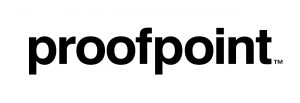
14. Proofpoint
Category: Cybersecurity
Location: Sunnyvale, CA
Proofpoint is an enterprise security software company that protects networks near and far. Based in Sunnyvale, California, Proofpoint was founded in 2002 by former Netscape executive Eric Hahn. After the dot-com bust, Hahn saw the opportunity to develop a suite of applications dedicated to protecting human capital from increasing cybersecurity risks. The company began as an email spam-detection product and has grown into a comprehensive platform for all aspects of employee information protection. As the threats have grown and evolved, so has Proofpoint’s suite of cybersecurity solutions.
In 2018, Hahn retired as chairman of the publicly-traded company now worth over $6 billion and was replaced by founding CEO Gary Steele. As of 2020, Proofpoint boasts technology partnerships with tech titans AWS, IBM, and Splunk to name a few, and their SaaS suite is used by over 5,000 organizations large and small. With annual revenue approaching $1 billion, Proofpoint proves to be a top dog in digital threat intelligence and protection.

15. Cornerstone
Category: Human Capital Management
Location: Santa Monica, CA
Headquartered in Santa Monica, CA with offices around the globe, Cornerstone is a people development company that believes people can achieve anything when they have the right development and growth opportunities. Cornerstone’s people development solutions include comprehensive recruiting software, a personalized learning platform, modern training content, development-driven performance management and holistic employee data management and insights. Approximately 6,300 organizations of all sizes use Cornerstone’s software, spanning more than 75 million users across over 180 countries and 50 languages.
In April 2020, Cornerstone acquired one if its largest competitors, Saba Software, and announced a new strategic vision and accelerated innovation plans to help organizations thrive through unprecedented change and transform into resilient unbound businesses. Cornerstone has made significant steps in this strategic direction with a renewed focus on product innovation that leverages people data to help organizations and their workforces realize their potential.
Along with Saba’s purchase, Cornerstone gained a new CEO, Phil Saunders, replacing founder Adam Miller who moved into a co-chairman role on the company’s board of directors.

16. Qualtrics
Category: Experience Management
Location: Seattle, WA / Provo, UT
Founded in 2002, Qualtrics is an experience management (XM) software company focused on improving four core areas of business interaction: customer, employee, brand, and product. Expanding beyond basic customer relationship management (CRM), Qualtrics’ XM platform measures experiential data across each metric, runs it through AI and machine-learning analytics, and provides actionable insights and tracks improvement.
CustomerXM covers everything the client sees and interacts with, allowing for an enterprise to stay connected and informed, while EmployeeXM provides utilities for tracking performance and incentivizing each team member. Product and Brand Experience tools enhance a company’s ability to create and market new ideas empowered by intelligent data, ensuring consistency and marketability. Qualtrics redefines the way a business incorporates experience as an asset with a single “System of Action.”
Qualtrics splits its headquarters between Provo, Utah, and Seattle, Washington, the latter of which is home to a namesake highrise. With more than 2500 employees at offices stretching across the world, the company still expects to grow its workforce substantially.
Its clients already include some of today’s most well-known brands, including BMW, Jet Blue, and Under Armour. In 2019, the company was acquired by SAP for $8 billion, counting on it as a powerful engine for the multinational software giant’s future growth.
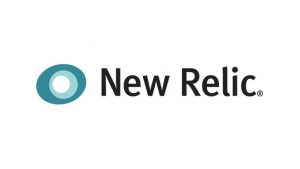
17. New Relic
Category: Application Performance Monitoring
Location: San Francisco, CA
New Relic, founded in 2008 and named with an anagram of founder Lew Cirne’s own name, creates observability software for engineering teams to visualize, analyze, and troubleshoot their software. New Relic One is an industry-leading cloud-based observability platform that includes Telemetry Data Platform to ingest, analyze, and alert on all metrics, events, logs, and traces; Full-Stack Observability to easily visualize and troubleshoot your entire software stack in one connected experience; and Applied Intelligence to detect, understand, and resolve incidents faster.
This year New Relic has brought to market a reimagined observability platform, via New Relic One, an entire set of products with a clear, intuitive user experience, powerful new capabilities, and simple pricing and packaging – including a perpetual free tier. Additionally the company announced support for open source by making its industry-leading instrumentation, integration and SDKs available via open source. In the spring, the company enhanced its AI capabilities to help customers detect, diagnose and resolve incidents faster, to improve the customer experience. New Relic also announced the addition of Bill Staples to their leadership team, who joined in January as Chief Product Officer. With nearly 2,300+ employees across 16 offices globally, New Relic continues to be the choice of 16,000+ customers on the observability market.
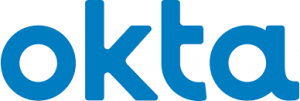
18. Okta
Category: Identity Management
Location: San Francisco, CA
Okta’s six services include a single-sign-on platform that allows users to log into multiple systems via one portal. They also offer an API authentication service. The company was founded in 2009 by Todd McKinnon and Frederick Kerrest, both previously of Salesforce. As of January 2019, Okta had over 100 million registered users. Nordstrom, Jetblue, MGM Resorts International, Major League Baseball, and the U.S. Department of Justice all currently use Okta. Their cloud-based services utilize facial recognition and touch ID technologies to keep user data secure.
The company has over 8,400 customers (a 30% increase in this year alone), with a 121% net retention rate. Its stock has risen 12% over the past month, recently hitting a 52-week high of $213.19. Okta anticipates a 32% increase in 2021, putting projected revenues at $775 million. The company’s services are built using the Amazon Web Services cloud. Okta thrives in a very competitive market; the big names who offer similar services include IBM Security, Microsoft Azure Active Directory, OneLogin, Salesforce Identity, and Oracle Enterprise SSO.
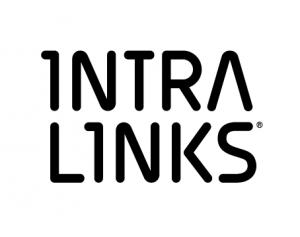
19. Intralinks
Category: Data Management
Location: New York, NY
Intralinks has been providing financial solutions since 1996. They currently focus on inter-enterprise content management and collaboration solutions, which includes their Virtual Data Room (VDR). The company developed the world’s first VDR in 2002, which lets businesses exchange information throughout due diligence processes in a secure space. Over 2.7 million people at 988 of the Fortune 1000 companies are reported to use its products. Intralinks is headquartered in New York City, and employs over 1000 people worldwide in Europe, South America, Australia, and Asia.
Intralinks customers include General Mills, Whole Foods, Bank of America, and Goldman Sachs. The company also uses a trademarked system of “distributed content nodes.” This allows customers to choose where sensitive information will be stored, encrypted, and indexed – for instance, if an American company does not want its information to be stored overseas, Intralinks can guarantee it stays within the country’s borders. Despite a global economic downturn during the COVID-19 pandemic, Intralinks forecasts a 5% increase in merger and acquisition announcements in 2020.

20. MuleSoft
Category: Integration
Location: San Francisco, CA
SaaS company MuleSoft sells integration software that connects applications, data, and devices. Their Anypoint Platform integrates on-premises software, legacy systems, SaaS, and a variety of other platforms. The company went public in March of 2017 and was acquired by Salesforce one year later for $6.5 billion. Last year, MuleSoft reported over 1,400 employees and 1,600 customers, including Wells Fargo, Siemens, the Leukemia and Lymphoma Society, and Asics.
MuleSoft’s Anypoint Platform provides a wide range of Application Programming Interface (API) tools including API Designer, a graphic design tool shareable amongst team members; API Manager, where developers can control user access and create policies for APIs; Anypoint Analytics, which tracks performance, usage, and other metrics; Anypoint Exchange, where users can store and access documents; and CloudHub, an iPaaS managed service. The world’s top API platform recently announced its new MuleSoft Accelerator for Healthcare, a system that will help securely connect electronic health records with public health data networks.
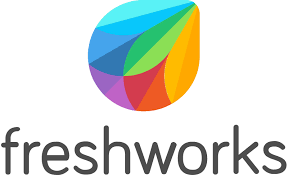
21. Freshworks
Category: Customer Engagement
Location: San Mateo, CA
Freshworks provides an intuitive customer engagement software program that helps businesses reach their customers across multiple platforms, enabling them to experience a positive and effective ROI. They use AI technology and cloud solutions to monitor customer touchpoints across the board thus opening the door to predictive customer insights for marketing and sales professionals. The company’s mission includes accelerating digital transformation for their customers and helping businesses retain customers for life.
In May, Freshworks brought in SaaS finance vet Tyler Sloat. Previously the CFO for Zuora, Sloat will join Freshworks’ leadership as the company’s new Chief Financial Officer. The new hire entered the company soon after they passed the $200 million mark for annual recurring revenue – a number that doubled in only 18 months. Freshworks also recently announced a strategic partnership with Tata Consultancy Services (TCS), with whom they will jointly establish and market sales, support, marketing, customer success, and ITSM solutions.
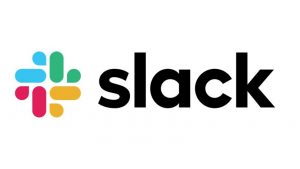
22. Slack
Category: Business Communication
Location: San Francisco, CA
Slack’s business communications system uses Internet Relay Chat (IRC) applications for team members to stay in touch via chat rooms organized by topic, or private messaging. In late June, the company rolled out a new feature called Slack Connect, a business-to-business capability that allows companies to communicate more efficiently. This expands their offerings from being primarily an internal chat tool to establishing external services that can link companies while keeping all data and missives secure.
Slack’s major competitor is Microsoft Teams, and both companies saw a steep rise in use while more people started working from home to avoid exposure to COVID-19. Slack recently partnered with Amazon Work Space (AWS) in a multi-year agreement, in which AWS chose to adopt Slack for their business communications and will develop new services to enable the chat giant to increase its size and capabilities. Slack went public in April 2019, when its shares rocketed to a $21 billion valuation.
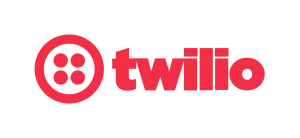
23. Twilio
Category: Cloud Communications
Location: San Francisco, CA
Software developers can perform a range of communication functions with Twilio’s APIs, including sending and receiving text messages, and making and receiving phone calls. Using Amazon Web Services, Twilio’s architectural design helps prevent dropped communications and outages. The company has also released open-sourced software such as OpenVBX, which lets businesses configure phone numbers to receive and route calls, and Stashboard, a status dashboard written in Python that displays the functionality of a service.
In March of this year, Twilio added two new key players to their leadership team when Steve Pugh joined as Chief Security Officer and Glenn Weinstein came on as Chief Customer Officer. The digital communications company has seen a boom in its stock this year, with a 76% increase in May, an 11% increase in June, and a 7% gain within the first two days of July. Twilio partnered with New York City and several state governments to help facilitate COVID-19 tracking programs.
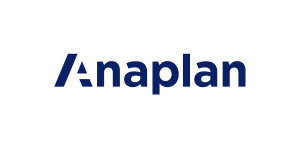
24. Anaplan
Category: Cloud-Based Planning
Location: San Francisco, CA
The subscription-based service sells business planning software and provides data to help companies make business decisions spanning the gamut from HR to finance. They sealed their status as a unicorn in 2016, after a $90 million funding round pushed their valuation up over $1 billion. One of the many cloud-based connectivity companies that seemed to benefit from the global pandemic’s new shift to a work-from-home economy, Anaplan shares rose 12.4% in May.
The company experienced a 36.9% revenue growth, with a bookings growth of only 10%. The company has a total of 1,600 employees, and generally sets its sights on top-level executives for its customer base. Their comprehensive platform is designed to replace tools that don’t communicate with each other (for instance, from developers like IBM and Oracle) to eliminate inefficient and costly processes, streamline data processing and improve planning and decision making.
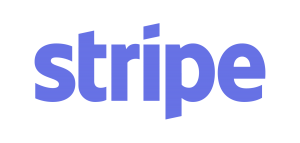
25. Stripe
Category: Financial Services
Location: San Francisco, CA
Headquartered in San Francisco, Stripe’s financial technology allows businesses across the globe to receive payments for their services. They currently serve markets throughout the E.U., Asia, Australia, and Mexico. Primarily used for payment processing, Stripe also provides a slew of other services, such as Atlas, which enables startups to incorporate more seamlessly into the U.S.; Terminal, a point of sale solution compatible with credit card readers; and Connect, which allows businesses to create marketplaces in which Stripe facilitates payment processing between buyers and sellers.
Last year, the company raised $100 million in Series E funding, bringing the startup’s valuation up to $22.5 billion. This April, Stripe secured $600 million in new funding in their largest round yet, helping to boost their current valuation up to $36 billion. The most recent round of investors included Andreessen Horowitz, General Catalyst, and Sequoia. Stripe’s customers include Slack, Shopify, Glossier, Amazon, and Under Armour. The company charges customers a 2.9% swipe fee and 30 cents per transaction.
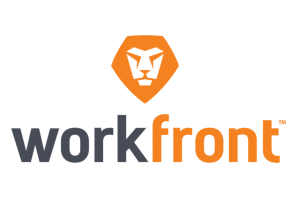
26. Workfront
Category: Project Management
Location: Lehi, UT
Workfront’s project management software helps companies develop web-based management strategies for issue tracking, document management, work management, time tracking, and portfolio management. Workfront currently employs 670 workers and has 4,000 customers across the U.S., Europe, Middle East, and Africa, including 58 of the Fortune 100. Customers include Comcast, the U.S. Food and Drug Administration, Cisco Systems, National Geographic, and Cars.com.
In June, Workfront announced it would be working with Stensul, an email creation platform, to connect and automate email workflow. The company also announced David Burggraaf as its new Chief Technology Officer. Burggraaf brings 30 years of global enterprise tech experience to the company, including 15 years of senior leadership. He will oversee operations, security, IT, and product engineering as the company continues to grow. Workfront’s inaugural annual conference debuted at the end of June; it was a great success that drew more than 10,000 enterprise leaders together in a virtual event.
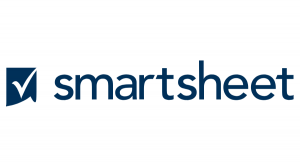
27. Smartsheet
Category: Work Management
Location: Bellevue, WA
Smartsheet focuses on collaboration and work management with a SaaS platform that can track projects, assign tasks, share documents, and manage calendars via a tabular interface. Tasks are laid out over a highly intuitive spreadsheet-type interface, which can be sorted according to priority, deadline, or team member. Users can attach, store, and share files within spreadsheet rows, with changes to shared documents being updated in real time. The platform also includes discussion boards, notifications, and alerts, and integrates with Salesforce, Dropbox, and Amazon Web Services.
Smartsheet has been supporting government agencies’ responses to COVID-19 by offering their services free of charge and without future obligation. Almost 100 federal, state, and local governments have tapped into Smartsheet’s platforms. In the beginning of Q1, when the pandemic ramped up in the U.S., Smartsheet’s total users numbered 6.75 million, up from 6.3 million at the end of Q4. The company’s product team rushed to develop 30 templates specifically designed to assist customers through crisis management and transition to work-from-home options.
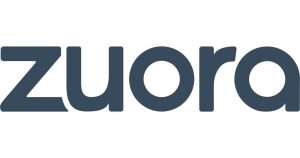
28. Zuora
Category: Subscription Management
Location: Redwood Shores, CA
Zuora creates software for businesses to use for launching and managing subscription-based services. Their applications automate billing, quotes, and collections, and compile revenue recognition and subscription metrics data. Within the Zuora Central Platform lie four SaaS applications: Zuora Billing, for recurring billing operations; Zuora Collect, for payment collections; Zuora CPQ, for sales quotes for subscription businesses; and Zuora RevPro, for revenue automation. The company filed for an IPO in April of 2018, raising $154 million in the offering, which led them to entering the market at a $1.4 billion valuation.
Subscription businesses like Zuora remain highly utilized despite global economic trends, and even experienced a 9.5% increase in revenue during Q1. The company’s platform seamlessly orchestrates subscription management from start to finish, and serves more than 1,000 companies globally. Customers include Rogers, Box, Schneider Electric, Xplornet, and Zendesk. The company was founded in 2007 and currently has over 1,200 employees.
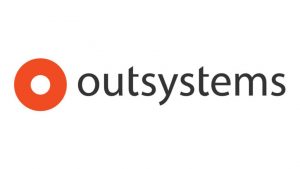
29. OutSystems
Category: Application Development and Management
Location: Boston, MA
OutSystems provides a low-code platform to develop mobile and web enterprise applications. These applications can run on premises or in the cloud, or through a hybridization between the two. Low-code is experiencing a surge in popularity, as it offers an intuitive option that allows developers to build applications with easy to use, drag-and-drop interfaces.
OutSystems’ Community Response Program was announced on their website as their way of contributing to action against the global COVID-19 pandemic. The company of just over 1,200 employees recently pledged to turn “up to 20 ideas focused on helping solve a global problem” into workable realities. Project support includes free access to their software for the duration of the pandemic, and full-time support from their Community Team Advocates, who work to coach and enable development teams as they turn their solutions into reality.
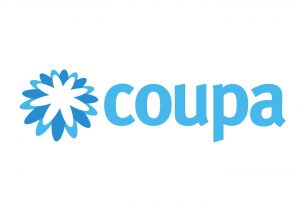
30. Coupa
Category: Business Spend Management
Location: San Mateo, CA
Coupa helps large companies track and have greater control over the resources and money they spend. Their SaaS products manage purchases, invoices, and expenses, providing executive dashboards, expense management, and alerts, all in one place. Coupa was built using Amazon Web Services and is based on the Ruby on Rails (RoR) platform.
Notably, their platform is being used by World Vision to quickly mobilize supplies and relief around the world amidst the COVID-19 pandemic. The humanitarian aid agency has been utilizing Coupa to help them deliver sanitation products and protective gear to populations of vulnerable children worldwide. Last month, Coupa announced that it closed $1.2 billion in convertible senior notes due in 2026. This announcement came around the same time the company acquired the German-based Bellin Group, a provider of treasury management software. Bellin will add to Coupa’s platform advanced payment capabilities, intercompany netting, and management of cash and liquidity risks. The terms of the deal were not disclosed.
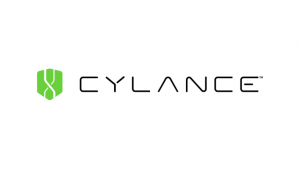
31. Cylance
Category: Antivirus Development
Location: Irvine, CA
Cylance works to increase computer security by developing antivirus programs and computer software that actively prevents, rather than detects, malware and viruses in order to block them before they can have an effect on the computer. Founded in 2012 by best-selling author Stuart McClure, cofounder of security consultancy Foundstone, and Ryan Permeh, Cylance was eventually acquired by BlackBerry in 2019. Cylance’s features go far beyond the typical behavioral analysis and virtualization, by relying on AI technology to identify and halt attackers.
Cylance has likely been the boost that helped BlackBerry’s stock climb 20% over the course of the past few months. Current Cylance customers include financial institution HBOR, healthcare systems such as Phoenix Children’s Hospital, glass repair and replacement giant Safelight, and Australia’s leading tourist destination – the Sydney Opera House.
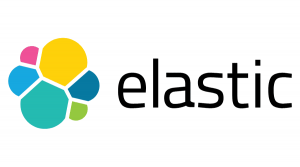
32. Elastic
Category: Search
Location: Amsterdam, NL
Elastic NV builds SaaS solutions for security, search, logging, and analytics usage. The company also works to develop open source Elastic Stack, which is comprised of Kibana, Beats, Logstash, and Elasticsearch. The open source tech is notably used by Tinder, Netflix, Wikipedia, Yelp, Uber, and Lyft. The Elasticsearch community alone has over 100,000 registered members.
Earlier this year, the company’s quarterly revenue surged by 60% year over year, to $113 million. This bump was likely facilitated by the company’s SaaS revenue doubling. Elastic proved resilient producing consecutive upbeat quarters despite a more dismal overall global economic outlook. At the end of June, Elastic launched Elastic Enterprise Search, a suite of search products created to simplify enterprise-grade search experiences for both customers and employees. The company currently has a market cap over $7 billion.

33. Zoom
Category: Business Communications
Location: San Jose, CA
Zoom provides videotelephony and online chat services for business, education, and leisure – especially in times of a global pandemic. The cloud-based peer-to-peer software platform has rocketed in popularity since stay-at-home orders were issued across the globe. For many companies, it provided a quick and easy way to transition to remote working and still enable employees to participate in face-to-face meetings, albeit virtually. For millions of users quarantined at home, it offered a way to connect with friends in a socially distant world.
The company went public in 2019, with its share price increasing over 70% on the first day of trading. The company closed the day with a valuation of $16 billion. By the beginning of 2020, Zoom had over 2,500 employees. Concerns over security lapses drew recent criticism, as well as the company’s decision to close multiple accounts in the U.S. and Hong Kong in the wake of human rights protests.
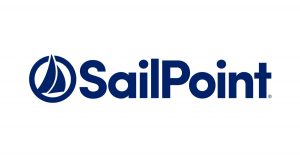
34. SailPoint
Category: Cybersecurity
Location: Austin, TX
Based in Austin, Texas, SailPoint is a company that is redefining the role of identity in modern cybersecurity with its SailPoint Protective Identity platform. While many companies move to remote offices, user access and identity management is becoming more challenging. Through its Protective Identity platform, a business can ensure that appropriate access is given to the proper users when necessary. SailPoint offers on-premises and cloud-based solutions to prevent, detect and resolve identity and access management problems in an easy-to-use interface.
The platform easily integrates with Google Cloud, Microsoft Azure, and Amazon Web Services, giving it near universal availability. Over 1,600 organizations currently use SailPoint to manage and properly enable user identity. CEO and Co-founder Mark McClain leads the company and promotes the power of teamwork, which drives his workforce of over 1,000 employees. With a market cap of over $2.5 billion and revenue over $300 million, SailPoint is on its way to becoming the leading trusted source for SaaS identity access management and identity governance.
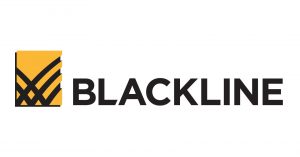
35. BlackLine
Category: Financial Processes
Location: Los Angeles, CA
BlackLine’s cloud-based solutions are designed to automate financial close processes. Founded in 2001 by Therese Tucker, former CTO of SunGuard Treasury Systems, the company set out to replace outdated Excel software with an accounting-specific suite of tools. Last month, the company partnered with Capgemini to develop finance and accounting teams that will optimize business efficiency and reduce process costs.
BlackLine’s accounting automation software is considered an industry leader with over 3,000 customers including Coca-Cola, Costco, Netflix, Google, and Sirius XM Holdings. Blackline has continued to experience a strong upward trajectory, with recent year over year growth of nearly 30%. Their “one stop shop” style of accounting services has been praised for increasing efficiency of the review process, report running, and for its easy access to historical financial data.
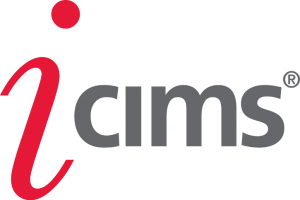
36. iCIMS
Category: Talent Acquisition
Location: Holmdel, NJ
When it began in 2000, iCIMS was Colin Day’s vision for an all-in-one talent searching software. Twenty years later, the company is a leading HR cloud recruitment platform serving more than 4000 companies worldwide. In the global marketplace of labor, applicant tracking systems are more important than ever, and iCIMS is a leader in the emerging field of marketing to talent.
Even cloud-based businesses cannot function without humans, which is why iCIMS offers a complete recruitment marketing software suite, providing businesses with the right tools to attract the perfect team members. Career pages and application systems are easily customized, ensuring high-quality candidate experiences. Additionally, enhanced communication and engagement keep talent pools from draining completely. The platform also eases the pains associated with furloughing and rehiring staff, a common problem during the current economic downturn.
As the world becomes less reliant on in-person staffing, the company’s new CEO Steve Lucas is ready to guide iCIMS boldly forward. Lucas previously saw success leading Marketo as it grew before it was acquired by software giant Adobe. iCIMS shows similar potential, as it currently generates about $250 million in recurring revenue. Based in Holmdel, New Jersey, iCIMS also operates out of offices in Manhattan, UK, Washington, DC, and San Jose.
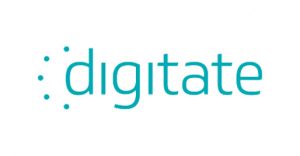
37. Digitate
Category: IT Automation
Location: Santa Clara, CA
Headquartered in Santa Clara, California, Digitate is the company behind the Ignio platform, a cognitive AI solution used for automating IT processes and tasks. When repetitive tasks are automated, operational costs decrease creating greater financial agility. Not to be confused with machine-learning (ML), cognitive automation leverages both ML and artificial intelligence to increase the speed and scale of a company’s business technology. Ignio also enables predictive and proactive operations that prevent problems before they happen and without dedicated human supervision. Maintenance issues across systems are automatically flagged and resolved quickly, ensuring network and application failures are limited.
Digitate is helmed by Global Head Akhilesh Tripathi and was founded as a software venture of Tata Consultancy Services (TCS), one of India’s largest IT companies. The software venture specializes in solutions for industries like aviation, financial technology, and utility management, but is always looking to expand. The company touts technology partners including IBM and Google Cloud.
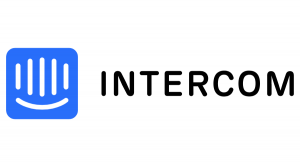
38. INTERCOM
Category: Conversational Relationship Program (CRP)
Location: San Francisco, CA
Since 2011, Intercom has innovated communications between internet-based businesses and their clientele with its dynamic messaging platform. The San Francisco-based company provides much more than just a chat room for its customers, allowing businesses to retain client conversations and related data, leading to more personalized interactions.
When Eoghan McCabe, Des Traynor, David Barrett, and Ciaran Lee founded Intercom, their goal was to provide internet-based businesses with their own messenger, one that might bridge the gap between small startups and their brick-and-mortar counterparts. Now, with a customer base of over 30,000, Intercom’s suite allows businesses to track and filter customer data, attract new clients with custom messaging, and to improve lines of communication. Integrating email, in-app messaging, and live chat, Intercom has become a standard-bearer for online business communication and revenue generation.
As of July 1, McCabe is transitioning from CEO to Chairman, placing current COO Karen Peacock in his former role. Together, they plan on expanding Intercom’s services to attract even larger clients, like new additions Amazon, Facebook, and Lyft. The company’s steady growth and interface improvements have been boosted recently by $125 million in series D funding, which they hope leads to further innovation providing communication solutions across the customer lifecycle.

39. InVision
Category: Digital Product Design
Location: New York, NY
In the world of digital product design, InVision has been leading the pack since 2011. The New York-based software company offers a start-to-finish digital design product platform that has transformed the way many companies look and operate. The cloud-based platform helps businesses and professionals create, collaborate, and manage development and design from the prototype stage to the finished product. InVision provides a wide ecosystem of utilities that integrate with other design toolkits, such as Sketch, and their Freehand whiteboard tool is finding use in industries outside tech.
Co-founders Clark Valberg and Ben Nadal currently lead a remote workforce of 700, operating without physical office space entirely, which has kept the company thriving during the COVID-19 pandemic. It comes as no surprise that InVision software has been used by companies that have become household names. Amazon, Spotify, Netflix, and Lyft are among those whose iconic designs have benefitted from the company’s user-friendliness and ease of collaboration. The company is already valued at nearly $2 billion, making it a design unicorn whose growth shows no signs of slowing down.
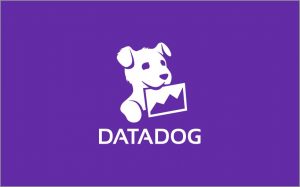
40. Datadog
Category: IT Monitoring
Location: New York, NY
The cloud is a scary place for many businesses to navigate, so Datadog makes system monitoring less complicated and more efficient. The company’s software is built for modern applications and allows operators and developers to see their entire infrastructure simply. Features include customizable dashboards with real-time interactivity, in-app communication tools, and a targeted alert system that acts before serious issues occur anywhere within the full stack. Data analytics are also made easier with Datadog, which lets companies see metric, log, and APM data in easy to understand visual graphics. Network Performance Monitoring provides visibility into network flows across environments, providing instant information about performance and dependency.
Even in a turbulent market, Datadog continues to grow. The New York-based company has seen its stock rise to an all-time peak during an economic crisis, proving that their value as a data platform is essential. Driven by co-founders Olivier Pomel and Alexis Lê-Quôc, the company has amassed a customer base of over 150,000, including major tech companies like Spotify and Facebook, which utilize Datadog’s services to monitor both cloud-based and physical servers. As of 2020, the company boasts an enterprise value of nearly $2 billion.

41. Qualys
Category: Cloud Security
Location: Foster City, CA
Qualys Inc. is a pioneer and leading provider of disruptive cloud-based IT, security and compliance solutions with over 15,700 active customers in over 130 countries including a majority of each of the Forbes Global 100 and Fortune 100. Qualys helps organizations streamline and consolidate their security and compliance solutions in a single platform and build security into digital transformation initiatives for greater agility, better business outcomes, and substantial cost savings. The native Qualys Cloud Platform and its integrated apps deliver 360-degree visibility across on premises, endpoints, cloud, containers, and mobile environments providing the visibility businesses need to assess critical security intelligence and to automate the full spectrum of auditing, compliance, and protection for IT systems and web applications.
Qualys recently introduced its game-changing VMDR® (Vulnerability Management, Detection and Response) app to discover, assess, prioritize, and patch critical vulnerabilities in real time and across the global hybrid-IT landscape – all from a single solution. And the company will soon bring the unified power of its cloud platform to endpoint detection and response with Qualys Multi-Vector EDR which will collect and correlate vast amounts of IT, security and compliance data, providing vital context and comprehensive visibility into the entire attack chain for a complete, accurate risk-based response.
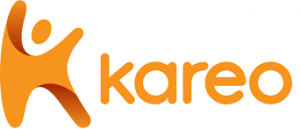
42. Kareo
Category: Medical Practice Management
Location: Irvine, CA
Unlike most employed healthcare providers, independent providers are required to consider much more than just the health of their patients. They are operating businesses, managing staff, marketing their practice, communicating with patients, overseeing the billing process and managing expenses. They need a software platform – designed just for them – that helps to automate their success. And at an affordable price.
But in today’s healthcare environment, physicians are pulled in many different directions. Without the right tools and support, the complexity and administrative hassles they face distract them from their most important job — patient care. That’s where Kareo comes in.
Kareo believes technology can make a substantial difference in the daily lives of physicians, their staff and the patients they serve. And that independent practices are the best place for building relationships with patients and delivering the most meaningful care.
Kareo’s complete, integrated platform makes it easier to manage the day-to-day operations of running an independent practice so providers can focus on what matters most, caring for their patients. Kareo helps over 60,000 providers get paid faster, find new patients, run their business smarter, and provide better care. Kareo’s complete, end-to-end platform provides powerful modules to establish and grow a healthy practice including clinical, telehealth, billing and patient engagement.
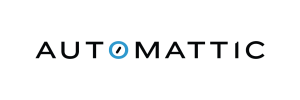
43. Automattic
Category: Web Publishing Software
Location: San Francisco, CA
Automattic is passionate about “making the web a better place,” a goal that isn’t as far-fetched as it seems. When developers Matt Mullenweg and Mike Little first unveiled WordPress fifteen years ago, they couldn’t have imagined the impact their blogging platform would have on the internet as a whole. Since founding Automattic in 2005, Mullenweg has led something of a revolution in open-source development and workforce enablement globally.
Now, the San Francisco-based company is a freedom-fighter of online self-publishing, beginning with its signature hosting site WordPress.com and expanding as it has added game-changing WP tools like VideoPress and WooCommerce to its lineup of free services. In 2019, Automattic acquired the once-coveted microblogging platform Tumblr from Verizon at a bargain price of less than $3 million, further cementing itself as a home for free online content creation.
Automattic has also made headlines for its innovative “distributed work” approach within its own, becoming an authority in work-from-home strategies. By giving its staff extensive options for work flexibility, Automattic is able to employ 1200 “Automatticians” in over 70 countries worldwide. Mullenweg even hosts a podcast called Distributed where he provides advice on how to operate the internet as the office of the world.
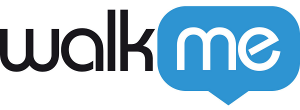
44. WalkMe
Category: Digital Adoption Program
Location: San Francisco, CA
Founded in 2011, WalkMe provides a service that solves a basic problem in tech: how do I do this? As technology evolves and advances rapidly, everyday users may find it frustrating trying to learn new platforms on their own. Thanks to San Francisco-based company’s Digital Adoption Platform, anyone can navigate and operate tech services without being a pro. The DAP deploys overlaid bubbles to provide context-driven assistance in learning software, websites, and apps alike. It addresses a clear need for bridging the gap between users and their tech utilities.
This hand-lending approach to user-friendliness has led WalkMe to become a bonafide unicorn with an ARR over $100 million, and the company is still showing signs of growth. Last year, the company landed $90 million in Series G funding, which will drive market expansion into areas including Latin America. WalkMe already serves 30 percent of Fortune 500 companies, counting over 2000 customers as of 2020.
WalkMe is led by CEO and Co-Founder Dan Adika, who believes in the power of complaining. By seeking out negative user experiences and improving platform capabilities, Adika is seeking a future where “software will adapt to humans.”

45. iMedX
Category: Revenue Cycle Management
Location: Atlanta, GA
In the modern technological era, revenue cycle management (RCM) has been key to the sustained success of medical practices and professionals especially during an unprecedented global health crisis. iMedX works alongside physicians’ groups and healthcare systems to streamline the processes in their RCM from end-to-end. The platform provides tech resources that medical professionals find crucial for data storage, analytics, and medical transcription and coding services. Easy to use clinical data registries promote more informed population health management, and expert, cost-effective abstraction services are offered by dedicated iMedX staff. The platform even offers extensive, up-to-date training in medical coding.
The Atlanta-based company is led by CEO Christopher Foley, a role he has held since 2013. The global medical transcription market is growing at a quick pace, and as health systems adapt to new executive and administrative technologies, many RCMs can be prone to error. iMedX aims to be the market leader offering improved solutions trusted by all players in the healthcare ecosystem.
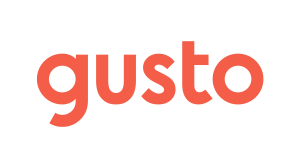
46. Gusto
Category: Human Resources
Location: San Francisco, CA
In the last nine years, Gusto has been a leader in human resource technologies for businesses large and small. The company provides cloud-based payroll services to over 100,000 clients across America, with software that tracks employee hours, manages benefits, and more all-inclusive HR management. Gusto is applauded for its software’s ease-of-use, making it the go-to for new business owners acting as their own HR department. Employees can even withdraw funds between pay periods with Gusto Cashout, bringing modern technology in to assist with the needs of today’s workers.
From the beginning of Gusto, which launched as ZenPayroll in 2012, CEO/Co-Founder Josh Reeves has kept the company focused on customer service. In addition to the platform’s usability, the company offers a free product called HR Basics which helps small businesses operate without the need for an entire human resources department. With over 500 employees between their San Francisco headquarters and offices in Denver and New York City, Gusto’s services are in high demand. Throughout the COVID-19 pandemic, the company has been guiding its clients through the government’s Paycheck Protection Program (PPP), enabling over $1 billion in approved loans to small businesses and providing COVID-related features.
After nine rounds of fundraising, the company has amassed a valuation of $3.8 billion, counting Fidelity Management and Research Company, and Generation Investment Management as their newest investors. Previous investments have come from firms such as Google Capital and Kleiner Perkins, as well as tech titans like Max Levchin and Kevin Systrom.
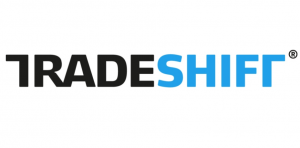
47. Tradeshift
Category: Supply Chain Payments
Location: San Francisco, CA
Tradeshift is an industry leader in supply chain payment solutions, founded in 2010 in Copenhagen, Denmark. The company serves over 500 customers worldwide, allowing businesses to connect digitally with suppliers, digitize their processes, and better manage potential risk. Tradeshift understands the importance of connection in today’s global economy, an understanding that has earned them awards and accolades across the fintech industry.
Although headquartered in San Francisco, the business network juggernaut Tradeshift is rooted in Denmark. Christian Lanng, Mikkel Hippe Brun, and Gert Sylvest founded the company after making waves in Europe before making the move to Silicon Valley in 2011. As of 2018, after years of funding and attracting investors like Intuit and HSBC, Tradeshift has reached a valuation of $1.1 billion, cementing its status as a fintech unicorn.
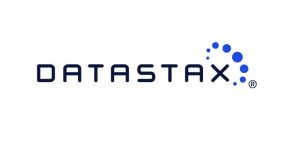
48. DataStax
Category: Data Management
Location: Santa Clara, CA
Sunny Santa Clara, California is home to DataStax, the data management company that provides enterprises with databases that are easy to access and operate simply. Built upon Apache Cassandra, the NoSQL database system, DataStax Enterprise provides operational reliability, monitoring, and security to web, mobile, and IoT applications across multiple datacenters and clouds. Whether companies require large or small database size, DataStax offers painless scalability for companies reliant on cloud-native, bare-metal, or hybrid systems.
Co-founder and CTO Jonathan Ellis has seen his company grow from its foundation in Austin, Texas in 2010 to its current value of nearly $2 billion. Along with CEO/Chairman Chet Kapoor, Ellis leads a staff of over 450 engineers, data architects, and more as they serve over 1100 companies worldwide. Corporate enterprises like Capital One, Delta Airlines, and Sony rely on DataStax to power their operations, and the company expects continued growth in the database market, already a $60 billion industry.

49. Everbridge
Category: Crisis Management
Location: Burlington, MA
Founded in 2002, Everbridge began as a response to the terror attacks of 9/11, a national emergency that left America wondering how to best communicate in moments of extreme urgency. The company has built the industry’s most reliable and scalable emergency notification engine, which is now used by both businesses and governmental organizations in times of public safety threats. With Everbridge, agencies can send alerts via telephone, email, and text messages in real-time, as well as stop alerts when read.
Its Critical Event Management platform helps manage critical events as they occur, assessing risks as they move geographically. Utilizing modern communication technologies like geotagging, emergency managers can use their app to respond and adapt as incidents occur. Everbridge has already provided crucial services during crises such as natural disasters, active-shooter situations, and civil unrest.
With offices in Pasadena, California and Burlington, Massachusetts, Everbridge covers emergency management alerts for over 5000 businesses, agencies, and municipalities. Its overall reach extends to over 550 million people across more than 200 countries, delivering on its promise to keep businesses running and people safe. Led by Executive Chairman Jamie Ellertson, the critical communications company has a market cap of $4.5 billion.

50. DiscoverOrg
Category: Business Intelligence
Location: Vancouver, WA
Knowledge can make or break a business, especially when market trends are constantly changing. Headquartered in Vancouver, Washington, DiscoverOrg enables businesses to use a broad knowledge base to their advantage. B2B intelligence fuels how companies market and sell their services, and DiscoverOrg’s web-based platform has the tools for businesses across industry to improve leads and optimize potential client details. Real-time notifications are available with the OppAlerts system, encouraging increased sales productivity and better conversions.
In 2019, DiscoverOrg acquired ZoomInfo while also adopting its name, further expanding its grip on the Go-To-Market (GTM) intelligence solutions. In 2020, the company raised $935 million in its IPO, making a big splash in the pandemic-shaken public market. DiscoverOrg’s founder and CEO, Henry Schuck challenges himself to “define new possibilities,” an attitude that has led his company to a billion-dollar valuation, making it one of the biggest companies in the Pacific Northwest, joining the ranks of sportswear titan Nike.
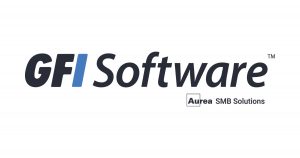
51. GFI Software (Aurea SMB Solutions)
Category: SMB Solutions
Location: Austin, TX
Over 60,000 companies worldwide turn to GFI for easy-to-deploy security, collaboration, and network management software. Award-winning GFI products such as Exinda Network Orchestrator, Kerio Control and Connect, and GFI LanGuard and FaxMaker, solve business problems cost-effectively for small and medium businesses. For even greater value, customers choose GFI Unlimited for a business-IT essentials suite of multiple products at one low price.
Headquartered in the US, GFI has a significant customer and development presence in the Americas and all parts of Europe. Distributors and reseller partners bring GFI products to SMB customers around the world. GFI is led by Dan Beer and an agile, remote team.
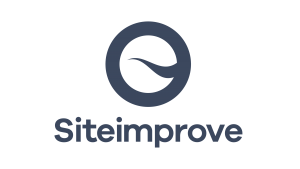
52. Siteimprove
Category: Digital Analytics
Location: Copenhagen, Denmark
Siteimprove considers itself a “people-driven software company,” aiming to increase web availability and simplify website management. The Siteimprove Core Platform checks website performance, utilizing automation and metric analysis to prioritize changes as necessary. From improving SEO to managing overall site quality and consistency, the service offers an all-in-one platform for web governance. The digital analytics software market is forecasting exponential growth in the short-term, and Siteimprove is among the leaders in the industry.
CEO/Founder Morten Ebbesen has been at the top of the company since the beginning, and he sees nothing but room for enhancement in Siteimprove’s services and products. More than 7500 organizations have utilized Siteimprove to boost their accessibility, including Visa, Microsoft, and Bayer. The multinational company was founded in Copenhagen, Denmark in 2003, and is a leader in corporate social responsibility worldwide.
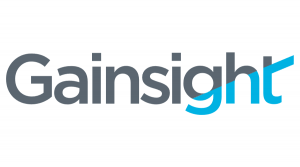
53. Gainsight
Category: Customer Success Management
Location: San Francisco, CA
Growing companies understand the importance of attracting a customer base, while continued customer happiness goes by the wayside. The wide adoption of SaaS has forced companies to consider new customer retention strategies, and Gainsight is focused on renovating the field of Customer Success Management (CSM). Since the company’s founding in 2009, Gainsight’s platform has evolved into a comprehensive tool for ensuring continued customer success across industries.
Gainsight provides enterprises with data-harnessing capabilities that are specifically geared toward maintaining and improving client experiences. The platform takes disparate data from multiple sources and turns it into discernable, actionable insights on customer needs. By moving beyond simple retention, businesses can focus on actively improving their overall customer experience. When customers are satisfied, they are more likely to consider new upsell opportunities before seeking new systems altogether. Gainsight’s software integrates with any Customer Relationship Management (CRM) system, including industry-leader Salesforce, making it easy to adopt and implement quickly.
Since 2013, CEO Nick Mehta has led by example, employing the “Golden Rule” into Gainsight’s product as well as its own company culture. His commitment to “treating others as you would treat yourself” is refreshing in the competitive world of e-commerce. In his time at the helm, Gainsight has raised over $150 million in funding and expects to hit an ARR of $100 million in 2020. Current users include software heavy-hitters such as Adobe, HP, Marketo, and Workday, illustrating the value of Customer Success Management as an essential component of any enterprise’s prosperity.

54. Namely
Category: Human Resources
Location: New York, NY
New York’s Namely is a renowned HR solutions provider for mid-sized companies across America. Their platform is an all-in-one human resource department, providing services benefiting both employers and their workforce, like payroll and benefits administration. An intuitive interface provides ease-of-use, encouraging employee engagement and productivity, as well as giving businesses the tools to properly manage their talent. With Namely’s software, everything from onboarding, time management, and compliance is covered, saving businesses time and offering more opportunities for executives to focus on keeping their employees happy.
Since 2019, Namely has been helmed by CEO Larry Dunivan, who remains committed to keeping both customers and employees satisfied with their workplace and prepared for long-term success. Over 500 Namely staff members support their client base of nearly 1300 companies across the globe.
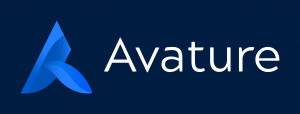
55. Avature
Category: Human Capital Management
Location: New York, NY
Founded in New York City in 2005, Avature is a leading Human Capital Management software company whose award-winning SaaS is used by corporations and enterprises alike. Attracting top-tier talent is essential, and Avature makes tracking prime candidates easier than ever with its market-leading Candidate Relationship Management system. With a platform built with both parties in mind, it ensures better matches between employers and job seekers. Diverse marketing tools are available for multiple brands and career options, allowing companies to concisely guide attracted candidates toward their best-fit opportunities. Avature Onboard makes new hire enrollment stress-free, and the Performance Management function fosters stronger employee engagement.
In 2019, Avature’s all-in-one Applicant Tracking System (ATS) received an “Excellence In Technology” award from Brandon Hall Group, an accolade that points to a bright future in the HCM industry. Founder and CEO Dimitri Boylan rose to fame as the head of online job search innovator HotJobs.com, a forerunner of modern employee recruitment engines. Over the last fifteen years, Boylan’s company has evolved from a recruitment service provider to a business management software innovator. Their CRM systems and talent management software are used by some of Fortune 500’s top companies, including conglomerates such as Cisco Systems and ViacomCBS.
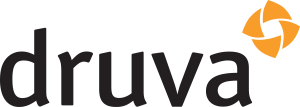
56. Druva
Category: Data Management
Location: Pune, India
In modern technological ecosystems, data is a prized commodity that requires as much attention as human and financial resources. Since its founding in 2008, Druva has become a global leader in data protection and management. Their products operate on their namesake Druva Cloud Platform, a cloud-native backup system built on Amazon Web Services, and apply to both physical and virtual servers alike. Features include data syncing across platforms and SaaS applications, automated disaster recovery, and built-in protection from ransomware.
As companies across industries increasingly move their data centers to cloud-based storage, Druva has grown, already surpassing $100 million in ARR, and currently holding a valuation of over $1 billion.
CEO Jaspreet Singh built Druva from the ground up with co-founders Milind Borate and Ramani Kothandaraman, and has expanded their base of operations from Pune, India to their new headquarters in Sunnyvale, California. The move reflects the company’s exemplary growth among the enterprise data management world, an industry worth more than $120 billion.
It now serves over 10% of Fortune 500 companies. Since achieving unicorn status, the company has joined forces with the rapidly-growing cybersecurity provider Fire Eye, further enhancing its appeal to businesses seeking top-tier data protection.
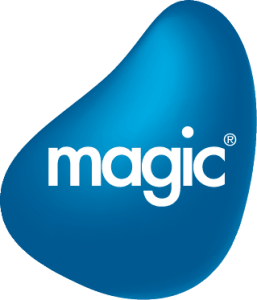
57. Magic Software Enterprises
Category: Systems Integration
Location: Or Yehuda, Israel
Magic Software Enterprises (MSE) was founded in Israel nearly forty years ago amidst a software landscape that was rooted in on-premise systems. Today, the company has grown into a global software provider powered by the cloud, with some of the largest clients in the world. It offers a myriad of business technology solutions across industries including finance, retail, healthcare, and manufacturing. Companies enhance their current SaaS products with advanced integrations made possible by the Magic xpi Integration Platform. Their FactoryEye Platform offers more control over all aspects of the manufacturing chain while optimizing data and making it actionable.
With an ARR of over $200 million and a market cap of $540 million, MSE has plenty of room to grow along with the SaaS market overall. Guy Bernstein has served the company as Chief Executive Officer since 2010. With a presence in more than 50 countries, including 14 regional offices, Magic Software Enterprises collaborates closely with its customers and thousands of business partners to accelerate their business performance.

58. ON24
Category: Virtual Event Management
Location: San Francisco, CA
Amidst the COVID-19 pandemic, more businesses are adopting virtual workplaces and utilizing video’s power of engagement. With long roots in internet-based business, ON24 is a leader in virtual event management and webinar marketing. Founded in 1998 as Newsource, ON24 has grown from a video distribution center to offering fully-functioning creative webcasting useful for any industry. The ON24 platform includes a video presentation suite that encourages viewer interaction, as well as providing the creators with access to crucial new information. Businesses can organize archived videos into playlists, create categories for easier searching, and even full on-demand content hubs. ON24 also offers live services, which are proving essential as more offices operate remotely.
ON24’s grand pivot into the SaaS world was spearheaded by CEO/President Sharat Sharan, a long-time internet executive and passionate entrepreneur. His company has seen accelerated growth yearly and recently reported surpassing the benchmark of an ARR over $100 million.
As the internet’s leading webinar marketing platform ON24 employs a strong workforce of around 500 employees, a number that is climbing during a time of high unemployment.
ON24 serves over 2000 customers worldwide, and their platform drives more than one billion minutes of engagement per year.
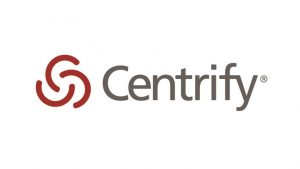
59. Centrify
Category: Cybersecurity
Location: Santa Clara, CA
Cyber attacks can come from anywhere, and keeping IT environments safe is a top priority for any business. For over 15 years, Centrify’s aim has been to move security beyond old ideas of privileged access, implementing their Zero Trust Privilege approach to identity management.
The company’s software and cloud-based services allow companies to better manage privilege throughout their network. This includes the ability to secure and audit access and control of users, as well as easier maintenance of overall Privilege Access Management (PAM). By limiting access to accounts, attacks can be stopped earlier, even when they come through compromised privilege. Their PAM-as-a-Service stands out in the cybersecurity industry to this day.
Centrify CEO Tim Steinkopf is committed to keeping up with new technologies to stay ahead of any “bad actors” looking to penetrate system weaknesses. As an elite cybersecurity company, Centrify serves 5000 customers, including half of Fortune 100 companies. Since 2018, private equity firm Thoma Bravo has been the majority investor of the company, which is based in Santa Clara, California, with additional offices in Utah and Washington state.
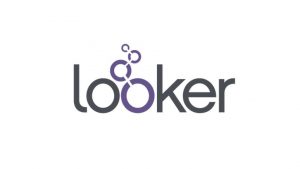
60. Looker
Category: Data Collection and Analysis
Location: Santa Cruz, CA
When Lloyd Tabb started Looker in 2012, his experience in programming combined with an entrepreneurial spirit to create the perfect foundation for his software startup. Less than a decade later, Looker was acquired by tech giant Google for $2.6 billion, adding the data collection app to its Cloud. In addition to its outstanding data analysis platform, Looker brings aboard its customizable dashboards and dedicated customer support. Its web-based data discovery app now has access to an even broader database thanks to the massive partnership, providing its customer base of over 1600 clients and counting with the tools to make better decisions.
With Looker’s platform, data analysis isn’t limited to SQL experts, as the program translates information into easily-understood visualizations and graphs. The enterprise SaaS company has passed another major milestone, achieving annual revenue of over $100 million, and becomes another valuable asset in Google’s market share. Business intelligence software is growing more valuable as data remains a crucial resource for any business, large or small. Alongside Tabb and co-founder/CTO Ben Porterfield, the company is led by CEO Frank Bien.
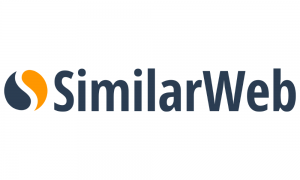
61. SimilarWeb
Category: Data Analysis
Location: Tel Aviv, Israel/London, England, UK
Founded in 2007, SimilarWeb provides businesses with the tools they need to better understand their site’s user impact. What began as a simple way to compare website content has evolved into a comprehensive data analysis platform, available in free lite form or as their expanded enterprise software. Both websites and apps are analyzed for their “stickiness,” allowing businesses to make necessary changes to increase engagement. Additionally, users can compare their own web assets to others in similar industries, providing specific solutions for increasing traffic and adding market value to any web-based company.
SimilarWeb splits its headquarters between Tel Aviv, Israel, and London, UK, but its services span the globe. CEO/co-founder Or Offer continues to lead a workforce of over 400 people between offices on four continents, and his company is showing positive signs for growth. After raising $42 million in a 2017 fundraising round, the company was given a post-money valuation over $800 million.
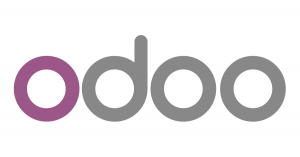
62. Odoo
Category: Enterprise Resource Planning
Location: Grand Rosière, Belgium
The access advantages of open-source software have been known for years, and Odoo is one of the great successes of the open-core model of business technology. Odoo’s software has roots in the OSS community, and has been employed by a variety of organizations in place of proprietary programs. Their subscription-based enterprise edition elevates the core platform, which is already a user-friendly business tool, and adds more functionalities and adaptability. Its customization options and all-in-one collection of modules are constantly updated through their development community.
When the company was founded in Belgium in 2005, the software was focused on Enterprise Resource Planning (ERP), and continues to lead the industry with their e-commerce, billing, and management features. Odoo’s ease-of-use and OSS origins have made it an invaluable tool in higher education, giving institutions access to the most comprehensive non-proprietary business software available.
Founder and CEO Fabien Pinckaers has been innovating business software since he was 13, and has seen his company grow from a small, open-source ERM platform to an industry standard bearer that is utilized across the globe. Over 5 million users have taken advantage of Odoo’s business enhancement products, both free and via paid subscription. Odoo’s operations include offices in the US, India, Dubai, and Hong Kong.
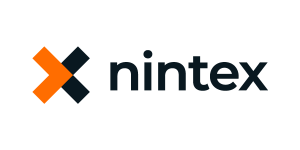
63. Nintex
Category: Workflow Programming
Location: Bellevue, WA
As the global standard in process management and automation, Nintex is on a mission to improve the way people work. Every day ops professionals, change agents, and power users across more than 8,000 commercial enterprises and government agencies leverage the easy, powerful, and complete capabilities of the Nintex Process Platform to accelerate digital transformation.
In fact, 40% of the Fortune 500 have standardized on the Nintex platform to manage, automate, and optimize their business processes – rapidly digitizing hundreds to even tens of thousands of workflows across their organizations. Nintex’s on-premise and cloud software solutions are put to work across all major industries including banking and financial services, healthcare and life sciences, government, and manufacturing. Notable customers include the likes of AstraZeneca, Barclays Bank, Boeing, Microsoft, GM Financial, Salesforce and Zoom.
The company’s strategy and technical innovation is often cited by leading industry pundits including Forrester Research who recognized Nintex as the highest scoring software vendor among it evaluated within The Forrester Wave™: Digital Process Automation for Wide Deployments, Q1 2019. Nintex has also eclipsed the $125 million ARR mark and is one to watch in the exploding digital process automation market which has a forecasted value of more than $16 billion by 2025.
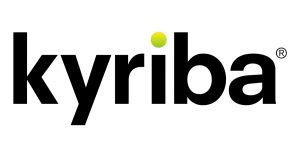
64. Kyriba
Category: Treasury Management
Location: San Diego, CA
Since founding Kyriba in 2003, serial entrepreneur Jean-Luc Robert has served as Chairman and CEO, leading his company to the top of the business finance world. Kyriba’s cloud-based treasury management software has become a standard-bearer, with over 2000 organizations benefiting from its ease-of-use, advanced visibility, as well as enhanced financial control. Robert’s company employs an “Active Liquidity Network” to connect the systems, data, and applications that keep a business booming.
In a global financial ecosystem, risk assessment and management are crucial. Kyriba’s cloud-based SaaS platform allows institutions to mitigate the threats associated with foreign exchange (FX) markets. It also provides comprehensive fraud prevention and security measures which can limit the access of potential hackers. Once a company’s funds are secure and risk is minimized, active liquidity helps to drive overall growth. The software also provides an accurate real-time look at the organization’s entire financial system, fostering greater decision-making.
After 20 years as an industry-catalyst, Kyriba is no stranger to accolades. In 2020, the company was named North America’s “Most Innovative Fintech Company” by Global Finance Magazine.
The new Payments Network suite provides solutions to modern problems involving cloud-migration and global-bank connectivity. Headquartered in San Diego, California, Kyriba serves over 2500 clients worldwide and has an ARR well over $100 million. The company counts organizations as diverse as Spotify and The New York Times.

65. Sumo Logic
Category: Data Analysis
Location: Redwood City, CA
As organizations continue to rely on external applications, there arises the importance of instant analysis and immediate response. Enter Sumo Logic, an enterprise-grade, cloud-based platform that collects, manages, and analyzes a company’s log data. In order to prevent failures of “mission-critical” applications and services, entire IT infrastructures can be monitored from anywhere. Sumo Logic’s tools are powered by machine-learning analytics, identifying and predicting anomalies before they create a crisis. Sumo Logic can also enrich business intelligence by making data easier to see and understand. Armed with better knowledge of customer engagement, businesses can adapt quickly and improve services to identify and attract new clients.
One of the most powerful machine data analytic companies in the world, Sumo Logic was founded in 2010 by self-proclaimed data nerds Christian Beedgen and Kumar Saurabh, and has grown into a power player in Silicon Valley. Household names like The New York Times, The Clorox Company, and Viacom are among their notable clients. The company expects continued robust growth in the years ahead.

66. Payscale
Category: Compensation and Data Software
Location: Seattle, WA
No matter the state of the job market, PayScale provides the essential service of tracking and comparing compensation across a multitude of industries and careers. Since 2002, the Seattle, Washington based company has provided instant compensation information to both individuals and businesses alike. Not only can individuals gauge their professional value, businesses can thoroughly assess their own compensation practices.
PayScale utilizes both crowdsourced and company-sourced information to create a database of over 54 million salary profiles, making it easy to make compensation changes even during times of economic hardship. The company’s new CEO Scott Torrey looks to massively grow PayScale, which has already surpassed the $100 million mark in ARR. After a fresh majority investment by Francisco Partners, PayScale received a valuation of $325 million. Current customers include such large companies as T-Mobile, Dish Network, UnitedHealthcare and Time Warner.
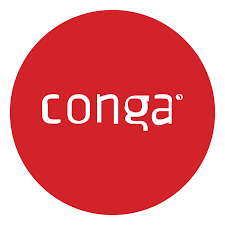
67. Conga
Category: Document Management
Location: Broomfield, CO
Conga has provided document generation, reporting, and sales tools for Salesforce.com since its inception in 2006. Its software automatically creates Microsoft Word, PowerPoint, Excel, and Adobe PDF files from Salesforce.com data sources. Conga takes manual paperwork and time-consuming administrative tasks off the table with its streamlined document creation and organization, so employees can work on increasing productivity elsewhere.
Late last year, Conga announced they would be opening a new office in Paris and launching a major recruiting drive, right on the heels of a 200% year-over-year bookings growth. Conga also recently announced that it will be combining with Apttus. Conga’s digital document transformation platform will join forces with Apptus’ quote-to-cash solutions, creating a digital transformation powerhouse for businesses worldwide. Conga’s customers include Qualcomm, Hilton Worldwide, New York State Health Foundation, Sony Electronics, and T-Mobile.
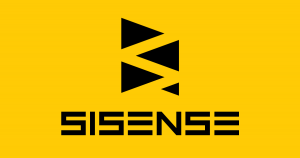
68. Sisense
Category: Business Analytics
Location: New York, NY
Currently headquartered in New York, the world’s leading business analytics software company was founded in Tel Aviv in 2004. Their back-end in-chip tech draws data from multiple sources, supporting an intuitive front-end product that utilizes easy-to-navigate dashboards for customers to access across devices.
Sisense recently made headlines by achieving gender parity within their core operating team – a goal most tech companies still fall short of. With the appointment of Ashley Kramer (from Alteryx) to Chief Product and Marketing Officer, Shelly Landsmann (most recently from Microsoft) as Vice President of International Sales and Global Alliances, and Sarah Ward (formerly of MongoDB) to General Counsel, the company’s operating executive unit is now 50% female.
Last May’s acquisition of Periscope Data boosted Sisense to over $120 million in recurring revenue, and they now have more than 900 employees. A $100 million funding round in 2020 Q1 sent their valuation up over $1 billion, sealing their unicorn status.

69. Socialbakers
Category: Social Media Marketing
Location: Prague, Czech Republic
Socialbakers’ Marketing Suite helps influencers and organizations that rely heavily on the impact of social media to develop competitive insights, optimize and manage ads, and follow brand-related conversations across multiple social media platforms. They also offer consulting services within their platform, and help users measure fan growth, monitor performance compared to industry leaders, and schedule and publish content.
Deep-learning algorithms set them a step above their competitors, which help users determine the best content to put out to keep their brand moving forward. Recently, they released their State of the Influencer Marketing Report, which focused on how COVID-19 has impacted the likes of Instagram models and niche goods vendors. They found that ad usage dropped 37% from April 2019 to April 2020, and that micro-influencers are considered hotter commodities than their counterparts with millions of followers. With information like this, Socialbaker lets those whose incomes hinge on likes and follows cultivate the types of marketing strategies that can still be effective in a pandemic economy. As stay-at-home industries may continue to trend long after quarantines subside, the social media marketing software will keep growing stronger.

70. PagerDuty
Category: IT Management
Location: San Francisco, CA
Founded in 2009, the American cloud computing software company uses machine learning and automation to alert users to outages and disruptions. Operating as a standalone service or integrated into an organization’s IT system, PagerDuty is used by such big names as GE, Vodaphone, American Eagle Outfitters, and Box.com.
Last March, the company filed its S-1 with the SEC for an IPO and went public on the NYSE in April 2019. More recently, they’ve upgraded their portfolio of tools to include more analytics capabilities and automation. Their Intelligent Triage system streamlines IT incident management by aggregating signals from almost 400 tools that monitor, observe, and ticket contextual data. This enables IT teams to increase productivity by eliminating a host of manual tasks.
In the year since it went public, PagerDuty saw its stocks rise 140%. FactSet estimates their 2021 revenue at over $200 million.
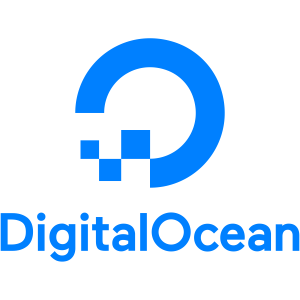
71. DigitalOcean
Category: Cloud Computing
Location: New York, NY
Headquartered in New York with datacenters spread out across the globe, DigitalOcean provides cloud services to scale and deploy applications across many computers simultaneously. The third-largest hosting company in the world, they recently closed $50 million in a Series C funding round from existing investors Andreessen Horowitz and Access Industries, bringing their valuation up to $1.15 billion.
The company serves more than 500,000 customers worldwide, two-thirds of which are located outside the U.S. They cater specifically to small businesses and entrepreneurs who may find other market options to be too cost-prohibitive. This niche market brings in $300 million in recurring revenue.
As their infrastructure expanded, crossed borders and continents, DigitalOcean encountered scalability, reliability and performance issues related to its Layer 2 routing model. Since then they have migrated to Layer 3 to ensure that no data is lost during rerouting. The transition will proceed for the remainder of 2020.
72. Liquid Web
Category: Web Hosting
Location: Lansing, MI
Established in 1997, Lansing, Michigan-based Liquid Web is an industry leader in cloud solutions and software for mission-critical websites, online stores, mobile and web applications for SMBs, and the designers, developers, and agencies who create for them. Known for high-performance, managed services, and exceptional support, the company has evolved into a Family of Brands that empower Web Professionals all over the world to create online content and commerce without worry. We built Liquid Web to deliver products, services and support designed specifically for mission-critical sites, stores and applications for SMBs and the designers, developers and agencies who create for them. A wide portfolio of cloud services and software means we have a product for every project. Managed services mean they can count on our highly trained experts to deliver the security, speed and reliability they need. Our nearly 600 employees provide the high-touch, human support that SMBs crave. And we’re committed to evolving our service offerings to meet the ever-changing need of these web-reliant, professional customers.
Covid19 has shown us that demand for IT spend continues to grow for web hosting and digital and eCommerce services in our small to medium space. This demand is coming from organizations moving business online, shifting to remote work, the increase of telehealth, and the proliferation of subscription based services and elearning. The pandemic has also proven the importance of Business Continuity and Disaster Recovery solutions.

73. Zaloni
Category: Data Management
Location: Durham, NC
Based in Durham, North Carolina, Zaloni provides data management software. The company‘s DataOps platform, Arena, streamlines data pipelines through an active catalog, automated control, and self-service consumption to help businesses use their complex and growing flow of data in more useful and insightful ways while reducing IT costs. Arena provides multi-cloud data management and partners with Amazon Web Services and Microsoft Azure, making it easily integrated into existing networks.
The company’s platform is a great utility among a wide array of industries, including financial services, pharmaceuticals, healthcare, and telecommunications, and has been used by companies like Alexion, Nuveen, Bremer Bank, TMX Group, and more. Founded in 2007, the company is led by CEO Susan Cook, who specializes in selling and positioning technology solutions in the growing enterprise data management ecosystem.
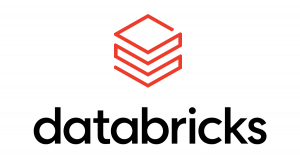
74. Databricks
Category Data Analytics
Location San Francisco, CA
Founded in 2013 by the founders of Apache Spark, Databricks is an open-source distributed computing framework that provides clients with automated cluster management. They recently released a data lake analytics tool called Delta Engine, which they claim to be eight times faster than Apache Spark. The company also just acquired Redash, which works with data scientists and analysts to build unique dashboards around their data for optimum visualization. Mozilla, Soundcloud, and Atlassian are all current customers of Redash.
Databricks AI is currently being used by Virgin Hyperloop to speed up its data processes as it works on building the next generation of travel while navigating the infrastructure and policies that go along with it. Databricks raised $250 million in funding last February, and another $400 million in October 2019. The company has grown rapidly since its founding as a 2013 UC Berkeley lab project.
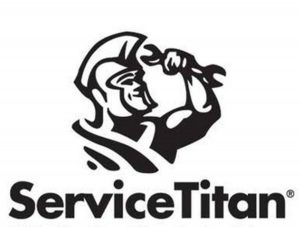
75. ServiceTitan
Category: CRM
Location: Glendale, CA
ServiceTitan develops mobile, cloud-based software for plumbing, electrical, and HVAC companies to assist them with customer reporting, CRM, intelligent dispatch, and market automation services. Last year, they were ranked the 123rd fastest-growing company in the U.S. on Deloitte’s 2019 Technology Fast 500 list.
The end-to-end solution provider offers mobile solutions for service techs and integrates with QuickBooks and Sage Intacct to help businesses monitor accounting and house calls all on the same platform. Last month, they acquired Buffalo, NY-based Pointman, a tech firm that combines operations management software with analysis, feedback, and even coaching for contractors. The CEOs of both companies are confident that Pointman’s current 6,000 active users will be able to seamlessly transition to the new platform within the next few months.
Ara Madhessian and Vahe Kuzoyan founded ServiceTitan in 2012 as a way to assist their tradesman fathers, both immigrants from Armenia. Today, the company employs over 900 workers in California, Atlanta, and Armenia, and has 4,000 clients in the U.S. and Canada.
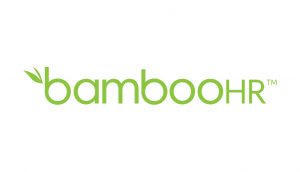
76. BambooHR
Category: Human Resources
Location: Lindon, UT
BambooHR provides companies with an intuitive dashboard through which customers can utilize an applicant tracking system for prospective employees, and an employee benefits tracker for existing workers. In 2019, PC Magazine noted that the company provided a “solid feature set and user-friendly interface,” adding that these were enough reasons to “push it to the top of our list” of top HR software options.
Recently, BambooHR teamed up with TazWorks, a background screening technology platform. The partnership with allow BambooHR users to tap into a massive network of background screening agencies to simplify the hiring process and allow employers to pre-screen applicants before interviews even begin.
BambooHR has also gained a reputation as a great company to work for, with the majority of their employees being salaried, and strongly discouraged from putting in more than 40 hours a week. They even developed a one-of-a-kind “paid paid vacation” policy to combat burnout, where employees can actually get reimbursed for part of their vacation expenses.
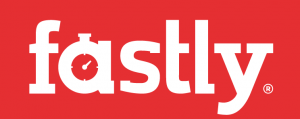
77. Fastly
Category: Cloud Computing
Location: San Francisco, CA
Fastly’s edge computing and content delivery network (CDN) help clients create faster websites, videos, and apps in a world where business and pleasure increasingly takes place online. A direct reflection of just how desperately the world craves smoothly operating websites right now, Fastly’s stock leapt 320% in three months this spring. Adding almost $6 billion in market value in 60 days, Fastly has shot past other rising tech stocks, like Etsy and Wayfair.
Fastly’s customers include Github, TikTok, Shopify, and Slack, all of whom have seen massive upticks in use since the COVID-19 “safer at home” orders began. It’s no wonder Fastly is doing so well, with clients whose consumer bases are increasing every day. The company enabled Slack to help the world ease into a work-from-home scenario and saw TikTok transition from a popular teenage social media outlet to an unlikely platform for politics and change. The company’s sales were in the $200 million range last year and are expected to grow more than 40% this year.
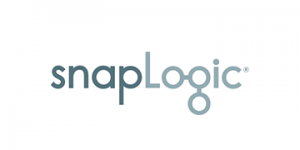
78. SnapLogic
Category: Cloud Integration
Location: San Mateo, CA
Cloud-based integration is a fast-growing business as companies transition from on-premise networks to increasingly digital workplaces. SnapLogic offers an Integration Platform as a Service (iPaaS) that is built for next-generation application and data integration. Connecting data and applications across the enterprise is fast and easy with SnapLogic’s low-code, AI-powered platform. Users from all parts of the business can create, monitor, and manage their own data pipelines from the intuitive, self-service cloud-based interface, without requiring a tech wizard peering over one’s shoulder.
Founded in 2006 in San Mateo, California, SnapLogic founder and CEO Gaurav Dhillon guides the company’s overall strategy, operations, and growth. As a leader in integration and automation solutions, SnapLogic has developed strong relationships with technology partners including AWS, Microsoft Azure, SAP, Workday, Salesforce, and Snowflake. It’s impressive customer roster features leaders across industries and regions, including Adobe, AstraZeneca, Box, Emirates, Groupon, Schneider Electric, and Wendy’s.
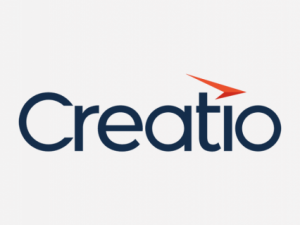
79. Creatio
Category: Business Process Management
Location: Boston, MA
According to the minds behind Creatio, “everyone is a developer” in today’s business ecosystem, and they have a platform that enables just such an idea. Formerly bpm’online, Studio Creatio is a low-code development platform that merges business process management (BPM) with customer relationship management (CRM) in one easy-to-use dashboard. It allows businesses large and small to automate their ideas in ways usually limited to dedicated information technology departments.
Dynamic case management tools allow users to understand their clients’ needs and how best to serve them. The software also ensures that building apps and mapping processes are easy for non-IT professionals. Studio Creatio even offers out-of-the-box templates through their Marketplace, designed to improve everything from sales, marketing, productivity, and HR tasks. Retail users can create, manage, and implement loyalty apps, while financial institutions are empowered to guide new client experiences from end-to-end. The customization capabilities are vast, making Creatio’s software solutions extremely agile across many industries.
Founded in 2002 in Boston, Massachusetts, Creatio is led by CEO and managing partner Katherine Kostereva, who has led the company’s growth from a five-person-startup to an industry-leading CRM and process management provider. Creatio software solutions are used by enterprises such as Bayer, L’Oreal, and Visteon, and employed by businesses in 110 countries.
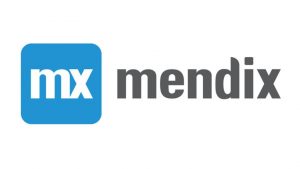
80. Mendix
Category: Low-Code Development
Location: Boston, MA
The low-code software platform was founded in 2005 in Rotterdam, before moving its headquarters to the U.S. They use model-driven visual software to test, build, and deploy applications. Siemens acquired Mendix in 2018 for $730 million, and the company is now partnering with Clearvision, who will become their official solution provider. The partnership will provide Mendix with support in the form of training, consultancy, and project contractors.
Part of Mendix’s mission is to help companies achieve their digital goals – many of which have been fast-tracked in the wake of COVID-19 and the need for many to work and conduct transactions online. Mendix helps customers do this while maintaining high levels of security and quality, and currently services more than 4,000 companies worldwide.
Mendix helps businesses work through high volumes of tasks that would otherwise take up valuable man hours and costly resources. Their low-code systems can handle large-scale quantities of contracts, rendering them invaluable to many customers as they navigate the overwhelming influx of virtual projects.
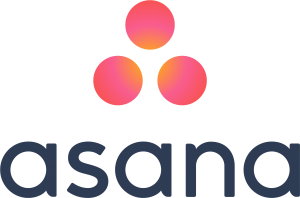
81. Asana
Category: Work Management
Location: San Francisco, CA
Founded in 2008 by Facebook Co-founder Dustin Moskovitz and former Facebook and Google engineer Justin Rosenstein, Asana is an application that helps organizations collate, track, and manage projects. The software service improves team collaboration and management, allowing users to share tasks, create deadlines, and delegate work through their computers or a mobile app.
The company recently announced integration with Microsoft Teams, as the two platforms work together to make task management even easier. Conversations within Teams will now become trackable and actionable tasks within Asana, with customizable notifications that can alert users to project changes and developments.
The combination of workflow apps and team management apps comes at a time when the Teams platform has added 31 million daily active users (DAU) in a single month, a direct result of the virtual collaboration needs arising from the COVID-19 pandemic. Asana’s tools can benefit projects ranging from small teams to large strategic initiatives. They currently have over 75,000 customers spread across 195 countries.
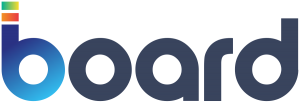
82. Board
Category: Business Intelligence
Location: Chiasso, Switzerland
Headquartered jointly in Chiasso, Switzerland and Boston, MA, the business management (BI) and corporate performance management (CPM) software company was founded in 1994, making it one of the oldest on our list. Its Board Toolkit is designed to help businesses improve productivity while lowering costs, which it does by implementing multi-dimensional analysis, dashboarding and reporting, planning and forecasting, and a slew of other tools.
As COVID-19 started picking up speed in early April, Board granted its customers and partners free access to its e-Learning platform, which it will continue to offer until the end of 2020. The platform contains over 130 videos and a plethora of exercises through which users can sharpen their skills from home during quarantine. The pandemic hasn’t slowed down the company’s global expansion plans, as they just opened up a new office in Toronto. Board’s impressive list of customers include softdrink competitors Coca-Cola and Pepsi, the U.S. Navy, Volkswagon, Puma, Mitsubishi Electric, and Telegraph Media Group.
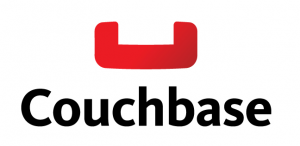
83. Couchbase
Category: Database
Location: Santa Clara, CA
Couchbase provides customers with a multicloud database that allows them to run business-critical applications on any cloud. Businesses have the option of using Couchbase either as a fully managed service or under a customer-managed option that gives them greater control. Couchbase exists in a corner of all our lives, as their customers include such huge names as American Express, Disney, eBay, LinkedIn, Tesco, Verizon, and United, to list the tip of the iceberg.
The company was able to raise $105 million in venture funding recently, making it one of the tech companies seemingly untouched by the economic downturn due to the coronavirus pandemic. They continued to raise large sums of money throughout the COVID-19 shutdowns through an oversubscribed Series G funding round. The round was led by GPI Capital and also included participation from several existing investors. Their valuation has not been disclosed, though estimates range from $500 million up to $1.0 billion. Couchbase currently has approximately 500 customers, including almost one-third of the Fortune 100.
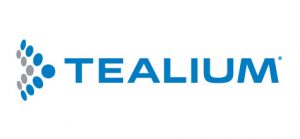
84. Tealium
Category: Marketing
Location: San Diego, CA
Tealium has been specializing in enterprise tag management systems and marketing software since 2008, when Mike Anderson, Ali Benham, and Olivier Silvestre founded it after working together at WebSideStory. Tealium is recognized as being one of the best places to work in San Diego and has been listed by Forbes as one of America’s most promising companies.
Their new machine learning tools in their Tealium Predict ML platform open up a whole new world of ways in which customers can use consumer data to improve customer service and grow revenue. Businesses can use Tealium to keep track of customer loyalty programs, purchases, renewals, and views, to identify which customers should be added to marketing campaigns, or determine who should be targeted for personalized offers on the website.
Last May, the company raised $55 million in a Series F funding round led by Silver Lake Waterman. ABN AMRO, Declaration Partners, Bain Capital, Georgian Partners, Parkwood, Industry Ventures, and Presidio Ventures also participated in the round. Tealium is currently valued at $850 million.
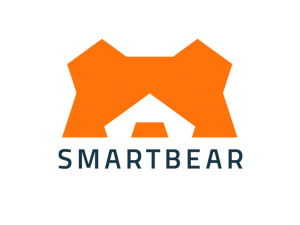
85. SmartBear
Category: IT Management
Location: Boston, MA
SmartBear Software offers a wide range of IT software tools for API readiness, code collaboration, software testing, monitoring, and code optimization. The company was founded in 2009, and has locations in Boston, Florida, Tennessee, and Texas. Current customers include Honda, American Red Cross, Adidas, National Geographic, Canon, and Google. This wide range of clients reflects their software’s versatility and ability to customize products to individual businesses’ needs.
SmartBear is currently 7.1 million members strong, with users in over 22,000 companies spanning 194 countries. The software testing platform acquired four other companies in recent years, including BitBar, a DevOps organization from Finland, and Cucumber Ltd., a Behavioral Driven Development (BDD) firm. SmartBear has been implementing more AI into its products and is open to integrating its own tools into whatever platform their customers are already using. With dozens of tools and solutions on their website, it’s easy to see why their client list ranges from healthcare to footwear and almost everything in between.
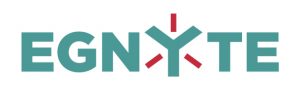
86. Egnyte
Category: Data Management
Location: Mountain View, CA
Founded in 2007, Egnyte offers customers a cloud platform for enterprise file synchronization and sharing, as well as collaboration, storage, and sharing capabilities. Their content services platform specializes in content governance, remote working, compliance, and content intelligence. Egnyte offers a long list of business and team plans, mostly broken down by office size, and fully customizable to cater to individual business needs.
The venture-backed company has 16,000 customers and $100 million in annual recurring revenue. They’ve recently emphasized secure file sharing options and ramped up the ways in which they can help the massive influx of remote workers in the COVID-19 economy. Their tools to help digitize business processes are also in high demand as many companies have had to do away with physical paperwork altogether while their employees have been sheltering at home. Notably, Egnyte provides ways for organizations to detect threats and gain visibility into vulnerabilities, helping them control risks across the cloud.

87. Lucid
Category: Collaboration
Location: South Jordan, UT
Lucid Software’s mission is to help clients connect the dots to bring big ideas to life. They make their mission possible through their Lucidchart and Lucidpress platforms. Lucidchart helps companies drive innovation through setting up diagrams and data visualization that allow workers to collaborate in a visual workspace. Lucidpress is the company’s design and brand management platform that gives customers the tools to bring their narratives to life through marketing and design.
The company’s total funding amount to date is $166 million, and they recently closed a $52 million round led by ICONIQ Capital, in which Meritech Capital, Spectrum Equity, and new investor Cross Creek also participated. They have 27 million users across 180 countries, including ninety-nine percent of the Fortune 500. Customers who use Lucid Software services to optimize their business include industry leaders like Microsoft, Google, Salesforce, Amazon Web Services, and Atlassian.

88. Datorama
Category: Marketing Intelligence
Location: New York, NY
Under parent company Salesforce, Datorama is a marketing analytics platform that utilizes AI-driven technology to allow customers to collate all of their marketing data into one place. With an eye-pleasing, intuitive interface, users can easily visualize data and customize dashboards that are shareable across their teams.
Salesforce recently announced two new marketing tools under the Datorama platform that should improve visualization for agencies and simplify data preparation. The new Harmonization Center will help marketers receive a more accurate analysis of data through improved enrichment and classification. Data Canvas will help companies design custom interactive dashboards to share with their team for richer insights.
Datorama’s new tools let users extract data from different sources so marketers can improve future campaigns and customize them for different regions, business units, and product lines.
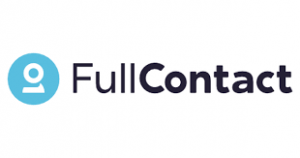
89. FullContact
Category: Identity Management
Location: Denver, CO
Headquartered in Denver, CO, FullContact also has offices in Riga, Latvia; Dallas, TX; Kochi, India; and Tel Aviv, Israel. The privately held company focuses primarily on Identity Resolution and real-time API solutions. Their suite of cloud-based software is available to developers, businesses, and brands. In 2018, they acquired Contacts+, a mobile contacts management company.
Last year, the company’s office in India was listed by the GPTW Institute as a Great Place to Work. This may come as no surprise to its employees, who have enjoyed a “paid paid vacation” policy since 2012. Every employee is awarded $7,500 per year to use towards a vacation of their choice, the only requirement being they promise to disconnect and not work whilst away.
Recently, they launched 3 new privacy solutions – Safe Haven, Private Identity Sharing, and Privacy Compliance. Safe Haven is an encrypted environment that obfuscates and stores data, deleting PII. Private Identity Sharing enables brands, portfolios, publishers, and manufacturers to communicate via privacy-safe relationships. Privacy Compliance lets companies consolidate client data assets in real-time, securely and privately.
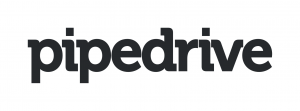
90. Pipedrive
Category: Sales Enablement
Location: Tallinn, Estonia
Pipedrive is a cloud-based SaaS company headquartered in Tallinn, Estonia and New York, NY, with other offices scattered across the globe. Their web and mobile app is a customer relationship management (CRM) tool designed to improve business productivity, and ultimately boost sales. The company currently has over 500 employees, and more than 90,000 customers worldwide. They have raised over $90 million in venture funding, mostly from Bessemer Venture Partners, Paua Ventures, Atomico, and Rembrandt Venture Partners.
The #1 user-rated CRM software company recently announced the arrival of Raj Sabhlok, former President of SaaS business application Zoho, as its new CEO. He brings more than 20 years of tech leadership to Pipedrive. As their tenth anniversary approaches, they also plan on launching several new features: a vertical navigation system to improve customer efficiency, an email marketing automation tool, customizable sale reports with interactive dashboards, live chat and website visitor tracking tools, and a toolset to streamline quotes, contracts, and proposals.
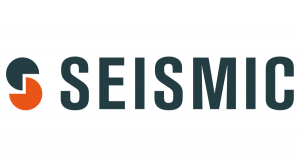
91. Seismic
Category: Data Management
Location: San Diego, CA
Seismic, a data management company based in San Diego, develops software that updates information in real-time so customers and employees can have access to the most relevant data. Seismic’s platform can be fully personalized to connect clients with technology in ways that are most conducive to building their business.
While sales teams learn to shift to a greater online presence in the midst of stay-at-home orders due to a global pandemic, it’s more important than ever for customers to receive tailored solutions to navigate new waters. This week, the San Diego startup was listed as a market leader for the second year in a row by Research in Action. Recognized for its growth strategy, they saw one way their 2019 acquisition of Percolate paid off.
Over 600 organizations go to Seismic for their sales enablement solutions. Big names include IBM, Quest Diagnostics, and American Express. The company now has more than 900 employees in 14 offices.
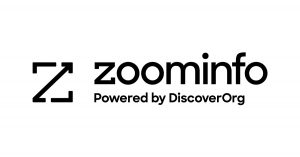
92. ZoomInfo
Category: Business Information
Location: Vancouver, WA
The subscription-based SaaS company was established in 2000, and currently maintains and sells access to a database of information about individuals and companies. They are an integrated cloud-based platform that sells information to marketers to help them find more customers. The company uses machine learning and AI to derive data from millions of online resources, updating all of its data in real-time.
ZoomInfo debuted on NASDAQ earlier this month, soaring more than 60% on its first day, a stark contrast to the plummeting shares that many corporations have seen during the COVID-19 pandemic. The economic downturn did not seem to have an effect on ZoomInfo, as its stock went from $21 to $34 in just a few hours. By day’s end, the company was valued at about $13.4 billion.
ZoomInfo’s IPO turned out to be the Greater Portland Area’s largest ever. The company is only out-valued by one other business in the area: Nike. Their office only employs 560 workers but is sure to have a positive influence on the surrounding economy, proving it’s a viable area for startups to succeed.

93. Talkdesk
Category: Customer Success
Location: San Francisco, CA
When CEO Tiago Paiva founded Talkdesk with Cristina Fonseco his goal was simply to make a difference in the customer support industry. Together, the two Portuguese tech entrepreneurs transformed call-center software with their end-to-end customer success platform. Enterprises can break free from legacy customer service systems that are no longer useful, empowering customer service agents with modern software tools that create positive experiences every time. Customer support-related costs are also decreased thanks to improved productivity and integration with other essential platforms like Salesforce, Zendesk, and Slack, among others.
Talkdesk’s Cloud CX is the first end-to-end contact center platform, offering a comprehensive suite of applications built to elevate customer experiences. Customer engagement empowers the end-user to communicate in their preferred manner, whether through interactive voice response (IVR) systems or one-on-one calls with specialized agents. Employees are engaged with desktop and mobile platforms that include workforce and quality management programs, ensuring the highest quality interactions with every customer. Talkdesk also offers advanced analytics, providing enterprises with insights into improving their overall contact center operations. With Cloud CX, customer service agents can operate from anywhere while guaranteeing the best experience possible for all involved.
The company serves over 1800 global users across 70 countries and has reached unicorn status with annual revenue of $150 million. Since the company’s inception, CEO and co-founder Tiago Paiva has been its driving force, overseeing the workforce as it has grown from ten to nearly a thousand team members. In addition to its San Francisco HQ, Talkdesk operates out of offices in several cities in Portugal, as well as locations in Spain, Australia, and the United Kingdom.

94. Cylynt
Category: Piracy and Compliance
Location: Beverly Hills, CA/Dublin, Ireland
Cylynt was founded in 2014 as SmartFlow Compliance Solutions with the mission to address the problem of software piracy, which for years software companies have faced alone. Government initiatives, copyright laws, and protection strategies have been largely ineffective in stopping the theft of billions of dollars in intellectual property.
Cylynt’s software-as-a-service (SaaS) based anti-piracy, license compliance, and software monetization technology protects the intellectual property of the world’s leading software companies and enables them to stop unauthorized use of their products and drive revenue by converting unlicensed users into paying customers.
The company’s data-driven approach to software utilization helps clients make informed business decisions, correct licensing problems, and protect customers from unfair competition. SmartFlow Enterprise, Cylynt’s flagship product, collects precise telemetry data that provides business intelligence and sales information and organizes, analyzes, and interprets that data into meaningful market insights and quality lead generation. Cylynt’s license compliance platform can improve productivity, reduce operational costs, and guard against downtime by preventing malware attacks and protecting brand names and reputations.
Cylynt is the brainchild of co-founders Ted Miracco, who has 30 years of experience in defense electronics, electronic design automation, and cybersecurity, and Chris Luijten, who has 15 years of experience in anti-piracy and software compliance enforcement. The company has offices in Los Angeles, California and Dublin, Ireland.
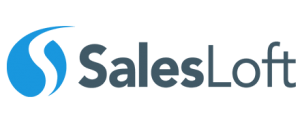
95. SalesLoft
Category: Sales Engagement
Location: Atlanta, GA
The interactions between buyer and seller are measurable, creating actionable data that can make or break a company’s sales. Atlanta, Georgia is home to SalesLoft and its industry-leading total sales engagement platform. It runs complementary to CRM programs, offering an end-to-end sales experience built for small and medium businesses and enterprises alike. The dashboard’s capabilities are enhanced through intelligent integration with other leading platforms like Salesforce and LinkedIn Sales Navigator, strengthening strategies through advanced analysis and improved insight visibility. With SalesLoft, customer relationships are stronger, which means revenue grows faster.
The cloud-based platform allows sellers to generate a pipeline, manage deals, and engage customers from one location. Through each step of the revenue lifecycle, sales departments can create and maintain usable connections through a variety of tactics like e-mail marketing and social media engagement. Automated “cadences” engage in processes that match established winning strategies, freeing sales reps to focus on improving their relationships with clients. Companies can also design automation to react to CRM health scores, helping drive expansions, upgrades, and renewals, as well as maintaining overall positive customer experiences.
SalesLoft was founded in 2011 by Kyle Porter and Rob Forman, who lead their company based on five core values that emphasize teamwork, a customer-first approach, and general optimism. These philosophies have created an environment that the Atlanta Journal-Constitution has called the “Top Mid-Sized” workplace in Georgia’s largest city. In 2019, the company raised $70 million in funding led by Insight Partners, giving it an estimated valuation near $600 million.
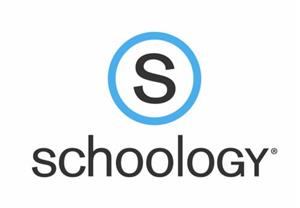
96. Schoology
Category: Learning Management
Location: New York, NY
In the midst of a global health crisis, online learning has become a new normal for students and teachers, making learning management systems (LMS) more important than ever. Founded in New York in 2009, Schoology is a cloud-based platform built for learning, classroom coordination, and social networking, uniting educators, students, and families. With Schoology, online education is made easier for everyone involved, allowing for a collaborative environment geared toward ensuring students get as much of a chance to succeed as they would have in a physical classroom.
Schoology offers a variety of tools for creating engaging learning materials, designing lessons and implementing lesson plans, and student assessment, all in one modern interface. The platform integrates with other essential applications like Google Drive, Blackboard, Dropbox, and YouTube, and many more, creating an educational ecosystem that fosters collaboration between educators, administrators, and students, as well as educational publishers.
In 2019, Schoology was acquired by PowerSchool, the market leader in K-12 education technologies boasting over 45 million students and counting. Together, they are providing tools for educators and students around the world, while generating revenue approaching $500 million. Schoology, fueled in partnership with PowerSchool, looks very much like the classroom of the future.
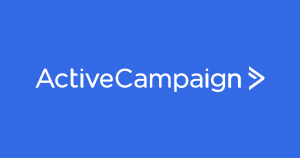
97. ActiveCampaign
Category: Customer Relationship Management (CRM)
Location: Chicago, IL
Chicago-based ActiveCampaign has become an innovator in customer relationship management (CRM) software thanks to its category-defining customer experience automation (CXA) platform. After its auspicious start as a software consulting firm, ActiveCampaign has developed one of the most valuable tools available for small and medium business (SMB) marketing solutions. Automation is in the hands of its users with a unique feature called “automation recipes,” customizable templates that provide greater focus and improved functionality. These “recipes” illuminate tasks and strategies that may have been otherwise ignored or deemed too difficult to enact, creating new opportunities for sales and customer outreach. Ultimately, the software’s goal is to make every customer’s experience the best it could possibly be.
The ActiveCampaign platform integrates with Salesforce, Shopify, and WordPress, among other existing CRM tools, using machine-learning to combine and analyze the enterprise’s data, offering better answers to challenging questions. However, it’s the task automation that sets ActiveCampaign apart, offering advanced sales, marketing, onboarding, and management utilities. The platform also automatically alerts businesses to potential client-churning in hopes of keeping existing companies active and satisfied.
CEO Jason VandeBoom founded ActiveCampaign in 2003 and has been its guiding force throughout its rise to the top of the cloud-software market. He has fostered an industry-acclaimed workplace, leading a workforce of over 550 people between offices in Chicago, Indianapolis, Indiana, Sydney, Australia, and Dublin, Ireland. The company has already amassed annual revenue of $90 million while serving over 100,000 customers across the globe.
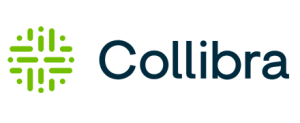
98. Collibra
Category: Data Governance / Management
Location: New York, NY
Data has quickly become one of the most valuable assets in any organization, and when used properly it can enhance operations, increase revenue, and strengthen relationships. New York-based Collibra wants to “make data meaningful” with its platform designed to provide deep visibility into an organization’s growing stockpile of digital information. Data governance ensures the high quality of that information as it scales with growth and change, keeping everything organized and easily accessible. Proper data governance also includes security, and Collibra’s platform also includes tools to centralize privacy policies and processes, as well as dashboards dedicated to monitoring regulatory compliance.
Collibra enables data intelligence to accelerate innovation. The cloud-native platform allows users to create business glossaries and data dictionaries, centralized repositories of information that are organized and made actionable. By building a machine-learning powered data catalog, Collibra empowers both IT professionals and executives to turn data into revenue-generating success strategies. Data profiling and scoring are automated, providing enhanced visualization and analysis.
With annual revenue of over $100 million, Collibra has surpassed the $2 billion mark in its valuation. Led by co-founders Felix Van de Maele and Stan Christiaens, the company is driven by over 700 employees in offices across eight countries. Collibra’s software has been used to manage and enhance the data of over 300 organizations, including partners like Cigna Health Systems, Progressive Insurance, and Lockheed Martin.
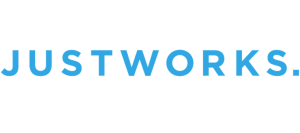
99. Justworks
Category: Human Resources
Location: New York, NY
Justworks’ HR software tools allow organizations to manage payroll, benefits, compliance, and employee details. For instance, it can manage payroll and vacation, benefits enrollment, and save and track important employee documents. There are multiple transparently priced tiered plans to choose from for managing back-end processes, and their customer service agents are available and responsive, and can be contacted via phone, email, or chatbot.
Earlier this year, the U.S.’s fastest-growing HR tech company closed a Series E funding round to the tune of $50 million. Union Square Investors and FirstMark Capital led the round, with Index Ventures, Redpoint Ventures, Bain Capital Ventures, Spark Capital, and Thrive Capital also participating. To date, Justworks has brought in $143 million in funding.
Founded in 2012, the company now employs over 600 workers, and has gone from focusing on small businesses to helping clients as large as United Healthcare and Kaiser Permanente. They have now logged more than 86,000 employees for their various clients.
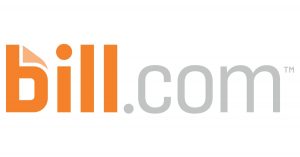
100. Bill.com
Category: Financial Processes
Location: Palo Alto, CA
Bill.com’s AI-enabled platform helps businesses monitor cashflow for clients and suppliers. The end-to-end payment platform works with banks like Bank of America, JPMorgan Chase Commercial Bank, and First National Bank of Omaha for various payment tech offerings. They are also paired with over 100 of the top accounting firms within the U.S., and countless businesses of all sizes. The company digitizes and simplifies automatic payments for small- to medium-sized businesses. As the pandemic has pushed an increasing number of business transactions online, more and more businesses are choosing this platform to monitor their expenditures.
The company raised $216 million in funding at the end of 2019, putting their valuation at $1.6 billion. After going public, their stocks shot up over 60% on their first day of trading. Their recent growth and success have earned them a spot in the broad-market Russell 1000 Index – a milestone that will help increase awareness within the investment community, and surely boost business even more.

